Shows
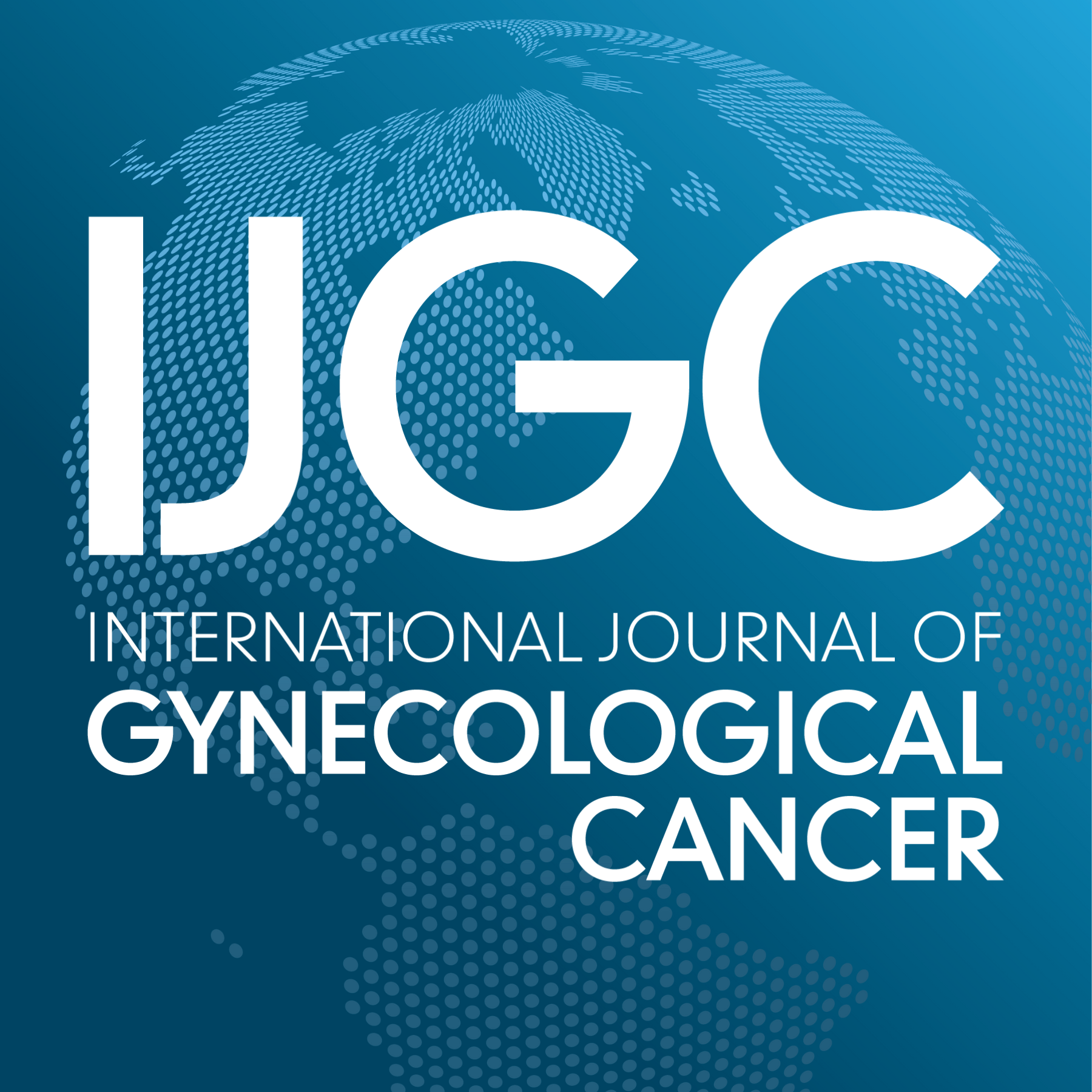 IJGC conversationsIDEAL Framework: Robotics Innovation and Evaluation with Hani MarcusIn this episode of the IJGC podcast, Editor-in-Chief Dr. Pedro Ramirez is joined by Dr. Hani Marcus to discuss the IDEAL Framework. Mr. Marcus is a Consultant Neurosurgeon at the National Hospital for Neurology and Neurosurgery and Honorary Associate Professor at the UCL Queen Square Institute of Neurology.
2025-06-0934 min
IJGC conversationsIDEAL Framework: Robotics Innovation and Evaluation with Hani MarcusIn this episode of the IJGC podcast, Editor-in-Chief Dr. Pedro Ramirez is joined by Dr. Hani Marcus to discuss the IDEAL Framework. Mr. Marcus is a Consultant Neurosurgeon at the National Hospital for Neurology and Neurosurgery and Honorary Associate Professor at the UCL Queen Square Institute of Neurology.
2025-06-0934 min The Constitution UnitReform of Stormont: Options for DiscussionTalk of possible reforms to the Stormont institutions has been growing recently, spurred by concerns about repeated institutional collapses, perceived inequities between different parts of society, and criticisms of the institutions' record in governance. But what options for reform are there, and what impacts might these have if implemented? A newly published report from the Constitution Unit at University College London addresses these questions. It does not draw conclusions, but aims to promote wider, more coherent and better-informed debate.This public event, hosted in collaboration with the Democracy Unit at Queen’s University Belfast, offered an occasion fo...2025-05-091h 28
The Constitution UnitReform of Stormont: Options for DiscussionTalk of possible reforms to the Stormont institutions has been growing recently, spurred by concerns about repeated institutional collapses, perceived inequities between different parts of society, and criticisms of the institutions' record in governance. But what options for reform are there, and what impacts might these have if implemented? A newly published report from the Constitution Unit at University College London addresses these questions. It does not draw conclusions, but aims to promote wider, more coherent and better-informed debate.This public event, hosted in collaboration with the Democracy Unit at Queen’s University Belfast, offered an occasion fo...2025-05-091h 28 UCL Political Science EventsRacial Inequalities in UK HealthcareMeet the speakersProf. Habib Naqvi MBE is the Chief Executive of the NHS Race and Health Observatory. Previously he worked at the Department of Health and Social Care, where he acted as the Policy Lead on the development of the Equality Delivery System. He also has experience in academia, having been awarded the title of Honorary Visiting Professor of Health Equity at the Queen’s Institute for Medicine, University of Bolton. Recently, he co-chaired the Advisory Board for the UCL Institute of Health Equity’s report titled Structural Racism, Ethnicity and Health Inequalities in London. Dr. Ram...2025-05-071h 13
UCL Political Science EventsRacial Inequalities in UK HealthcareMeet the speakersProf. Habib Naqvi MBE is the Chief Executive of the NHS Race and Health Observatory. Previously he worked at the Department of Health and Social Care, where he acted as the Policy Lead on the development of the Equality Delivery System. He also has experience in academia, having been awarded the title of Honorary Visiting Professor of Health Equity at the Queen’s Institute for Medicine, University of Bolton. Recently, he co-chaired the Advisory Board for the UCL Institute of Health Equity’s report titled Structural Racism, Ethnicity and Health Inequalities in London. Dr. Ram...2025-05-071h 13 BEST OF LONDONNEW Mood Enhancing NonAlc Drinks, Make new friends Hack, BEST Places for Tea, BEST place to Swim, BEST Alcohol Free Venues, Awarded an MBE from The Queen, Best of London with Laura Willoughby MBENEW Mood Enhancing NonAlc Drinks, HOW TO Make Friends When Out, BEST Places for Tea, BEST place to Swim, BEST Alcohol Free Venues In London, Awarded an MBE from The Queen, Best of London with Laura Willoughby MBE and Ben HollandPlease FOLLOW and SUBSCRIBE to BEST OF LONDON as we have great shows coming up. For links on all the platforms and social media, just click here: https://linktr.ee/bestolondon E-mail:ben@lifemac.com I read and reply to all your e-mails.A great episode where we discuss:How Laura made being alcohol free feel n...2025-04-201h 01
BEST OF LONDONNEW Mood Enhancing NonAlc Drinks, Make new friends Hack, BEST Places for Tea, BEST place to Swim, BEST Alcohol Free Venues, Awarded an MBE from The Queen, Best of London with Laura Willoughby MBENEW Mood Enhancing NonAlc Drinks, HOW TO Make Friends When Out, BEST Places for Tea, BEST place to Swim, BEST Alcohol Free Venues In London, Awarded an MBE from The Queen, Best of London with Laura Willoughby MBE and Ben HollandPlease FOLLOW and SUBSCRIBE to BEST OF LONDON as we have great shows coming up. For links on all the platforms and social media, just click here: https://linktr.ee/bestolondon E-mail:ben@lifemac.com I read and reply to all your e-mails.A great episode where we discuss:How Laura made being alcohol free feel n...2025-04-201h 01 Tech and Science Daily | The StandardBrain injury patients help scientists investigate logical thinkingScientists have identified the key brain regions essential for logical thinking and problem solving. The study involved a survey of patients who have suffered a brain injury from either a stroke or tumour. To explain the results, including the development of two new tests of reasoning, we’re joined by lead author, Dr Joseph Mole from UCL Queen Square Institute of Neurology and Department of Neuropsychology at UCLH.Also in this episode:The origins of water on Earth is challenged in a new studyRapid rise in e-cigarettes 'stalls' ahead of a nationwide ban on single-use vapes, stu...2025-04-1609 min
Tech and Science Daily | The StandardBrain injury patients help scientists investigate logical thinkingScientists have identified the key brain regions essential for logical thinking and problem solving. The study involved a survey of patients who have suffered a brain injury from either a stroke or tumour. To explain the results, including the development of two new tests of reasoning, we’re joined by lead author, Dr Joseph Mole from UCL Queen Square Institute of Neurology and Department of Neuropsychology at UCLH.Also in this episode:The origins of water on Earth is challenged in a new studyRapid rise in e-cigarettes 'stalls' ahead of a nationwide ban on single-use vapes, stu...2025-04-1609 min Moving ScienceMoving Science Podcast: The current and future role of MRI for diagnosis and prognosis in MSHost: Prof. Olga Ciccarelli, UCL Queen Square Institute of Neurology and Neuroinflammation in LondonSpeaker: Prof. Massimo Filippi, Vita-Salute San Raffaele University in Milan, ItalyThis new episode will be interesting to anyone keen to learn about the current standards of care and recent advancements in the field of MRI and MS, including the recent revision of the McDonald criteria, AI-driven and automated MRI, and an outlook to the future. Join us as our speakers discuss the need for a "cultural switch" in MS – a shift already prominent in other disease areas such as Alzhei...2025-03-0320 min
Moving ScienceMoving Science Podcast: The current and future role of MRI for diagnosis and prognosis in MSHost: Prof. Olga Ciccarelli, UCL Queen Square Institute of Neurology and Neuroinflammation in LondonSpeaker: Prof. Massimo Filippi, Vita-Salute San Raffaele University in Milan, ItalyThis new episode will be interesting to anyone keen to learn about the current standards of care and recent advancements in the field of MRI and MS, including the recent revision of the McDonald criteria, AI-driven and automated MRI, and an outlook to the future. Join us as our speakers discuss the need for a "cultural switch" in MS – a shift already prominent in other disease areas such as Alzhei...2025-03-0320 min Soccer Down HereSoccer Down Here AM 2/11/25: USYNT, FC Cincinnati Preview, UCL Previews, AM NewsTuesday Thoughts for SDH start with the USYNT U-17 win in Costa Rica last night- scoring 22 goals in a match against the USVI- we talk about the match and the afterQueen City Press Laurel Pfahler starts our MLS previews looking at FC Cincinnati and all the soap opera attached with their starsWe preview the Champions League and look at the AM news- a lot of it in the courtroom2025-02-112h 02
Soccer Down HereSoccer Down Here AM 2/11/25: USYNT, FC Cincinnati Preview, UCL Previews, AM NewsTuesday Thoughts for SDH start with the USYNT U-17 win in Costa Rica last night- scoring 22 goals in a match against the USVI- we talk about the match and the afterQueen City Press Laurel Pfahler starts our MLS previews looking at FC Cincinnati and all the soap opera attached with their starsWe preview the Champions League and look at the AM news- a lot of it in the courtroom2025-02-112h 02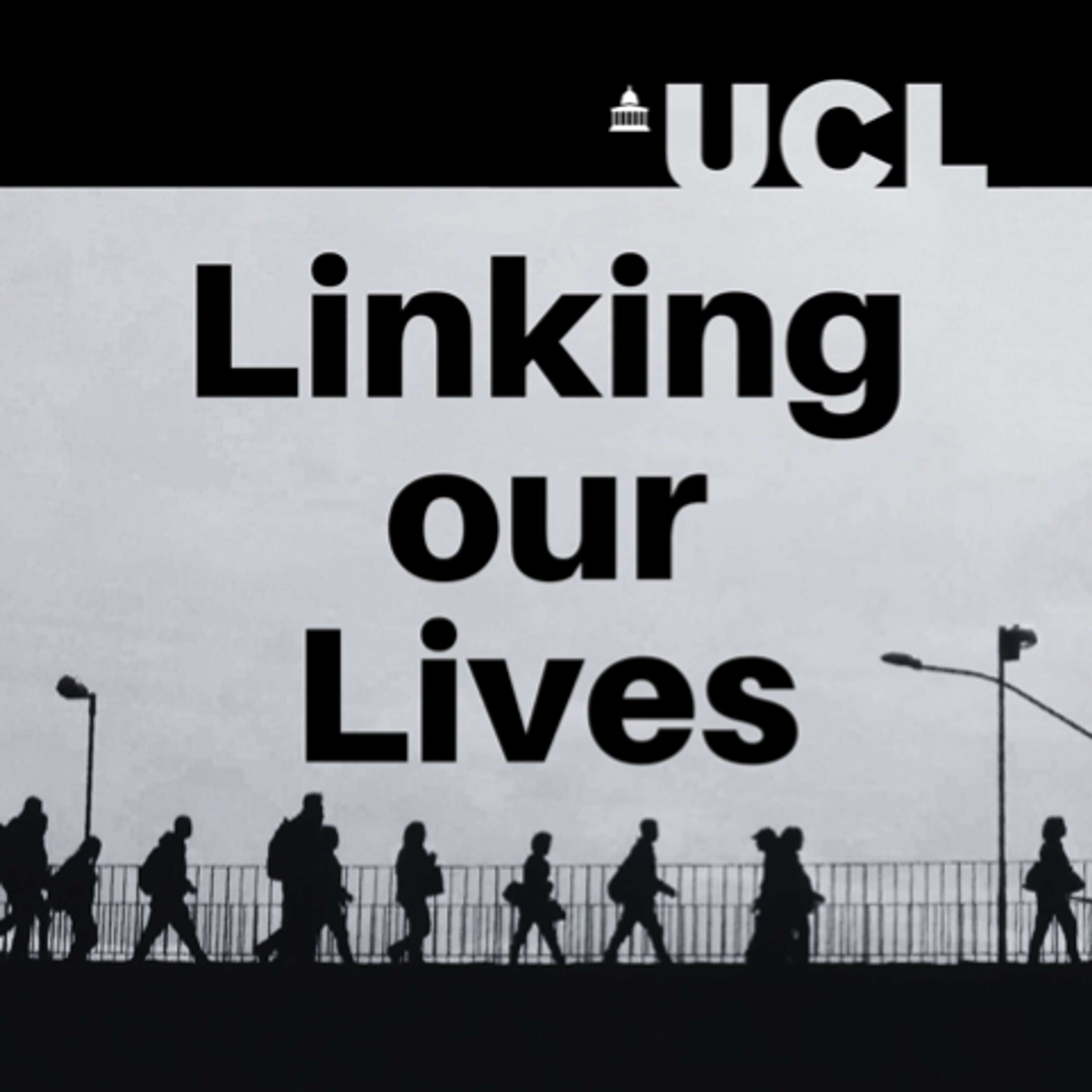 Linking our LivesResearching internal migration: championing the ONS Longitudinal StudyIn Episode 1 of Series 3, we’re talking about how uniquely placed the ONS Longitudinal Study is to research questions of internal migration and telling you more about this unique data resource and its potential to forward our understanding of the changes to our society since 1971.Our LS Champions for this episode are two eminent Population Geographers, the aptly named Tony Champion, Emeritus Professor at the University of Newcastle and Ian Shuttleworth, Professor at Queen’s University Belfast.Tony and Ian have worked separately and together for more than 30 years using the ONS LS on questions rela...2025-02-0530 min
Linking our LivesResearching internal migration: championing the ONS Longitudinal StudyIn Episode 1 of Series 3, we’re talking about how uniquely placed the ONS Longitudinal Study is to research questions of internal migration and telling you more about this unique data resource and its potential to forward our understanding of the changes to our society since 1971.Our LS Champions for this episode are two eminent Population Geographers, the aptly named Tony Champion, Emeritus Professor at the University of Newcastle and Ian Shuttleworth, Professor at Queen’s University Belfast.Tony and Ian have worked separately and together for more than 30 years using the ONS LS on questions rela...2025-02-0530 min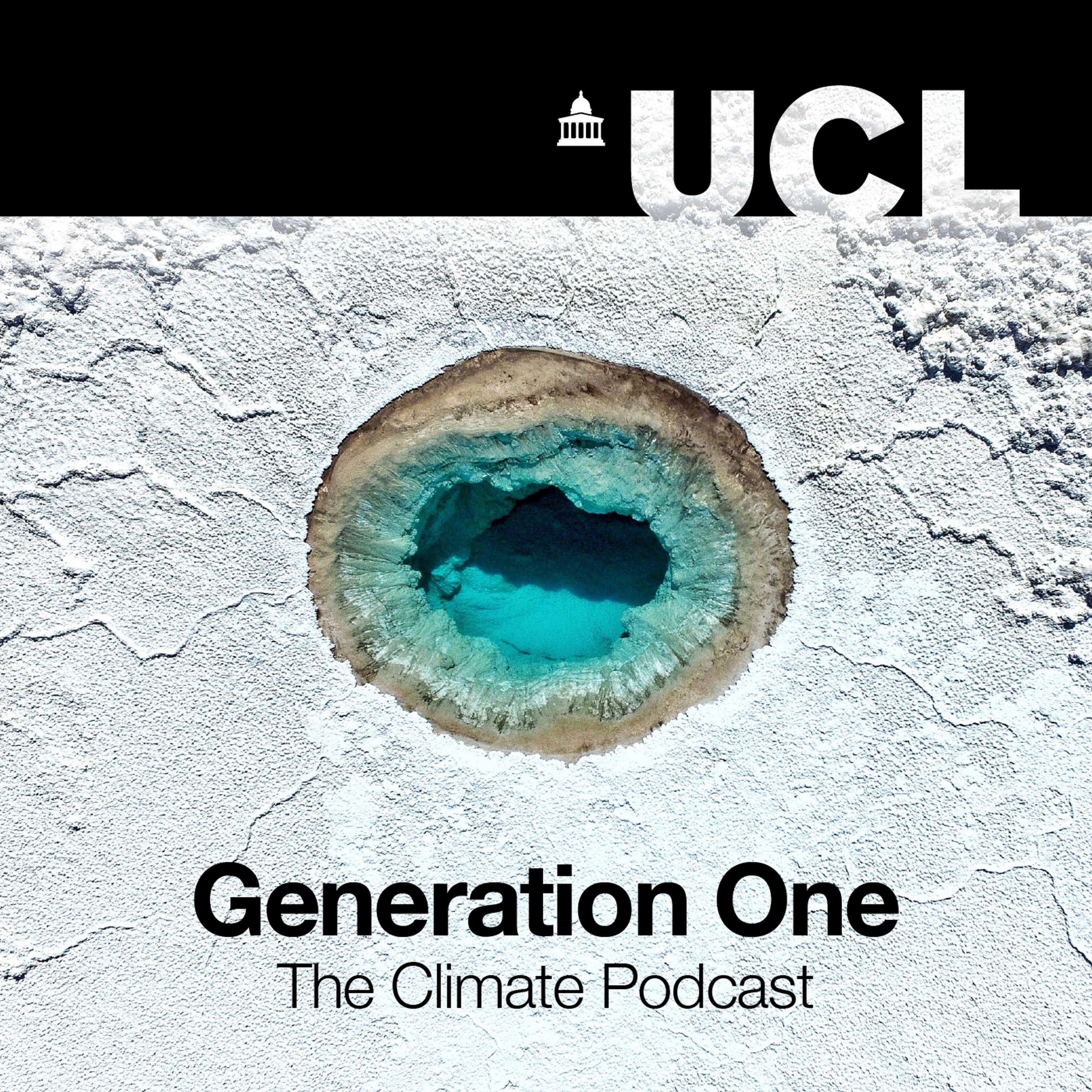 UCL Generation One: The Climate PodcastSeason 5, Ep 3: Unpacking COP29 - Financing the futureIn this special episode hosts Mark Maslin and Simon Chin Yee give us behind the scenes insights and their verdicts on the outcome of COP29. This COP was mainly about the money and went into extra time, but our hosts unpack it and take a deep dive into the key results with the help of special guests in the studio Priti Parikh, Professor of Infrastructure Engineering and International Development, at UCL’s Bartlett School of Sustainable Construction and Anoushka Jain, a UCL Politics and International Relations student and member of the UK Youth Climate Coalition. We even roun...2024-11-2841 min
UCL Generation One: The Climate PodcastSeason 5, Ep 3: Unpacking COP29 - Financing the futureIn this special episode hosts Mark Maslin and Simon Chin Yee give us behind the scenes insights and their verdicts on the outcome of COP29. This COP was mainly about the money and went into extra time, but our hosts unpack it and take a deep dive into the key results with the help of special guests in the studio Priti Parikh, Professor of Infrastructure Engineering and International Development, at UCL’s Bartlett School of Sustainable Construction and Anoushka Jain, a UCL Politics and International Relations student and member of the UK Youth Climate Coalition. We even roun...2024-11-2841 min UCL MindsSeason 5, Ep 3 - Unpacking COP29: Financing the futureIn this special episode hosts Mark Maslin and Simon Chin Yee give us behind the scenes insights and their verdicts on the outcome of COP29.
This COP was mainly about the money and went into extra time, but our hosts unpack it and take a deep dive into the key results with the help of special guests in the studio Priti Parikh, Professor of Infrastructure Engineering and International Development, at UCL’s Bartlett School of Sustainable Construction and Anoushka Jain, a UCL Politics and International Relations student and member of the UK Youth Climate Coalition. We even round off this ep...2024-11-2741 min
UCL MindsSeason 5, Ep 3 - Unpacking COP29: Financing the futureIn this special episode hosts Mark Maslin and Simon Chin Yee give us behind the scenes insights and their verdicts on the outcome of COP29.
This COP was mainly about the money and went into extra time, but our hosts unpack it and take a deep dive into the key results with the help of special guests in the studio Priti Parikh, Professor of Infrastructure Engineering and International Development, at UCL’s Bartlett School of Sustainable Construction and Anoushka Jain, a UCL Politics and International Relations student and member of the UK Youth Climate Coalition. We even round off this ep...2024-11-2741 min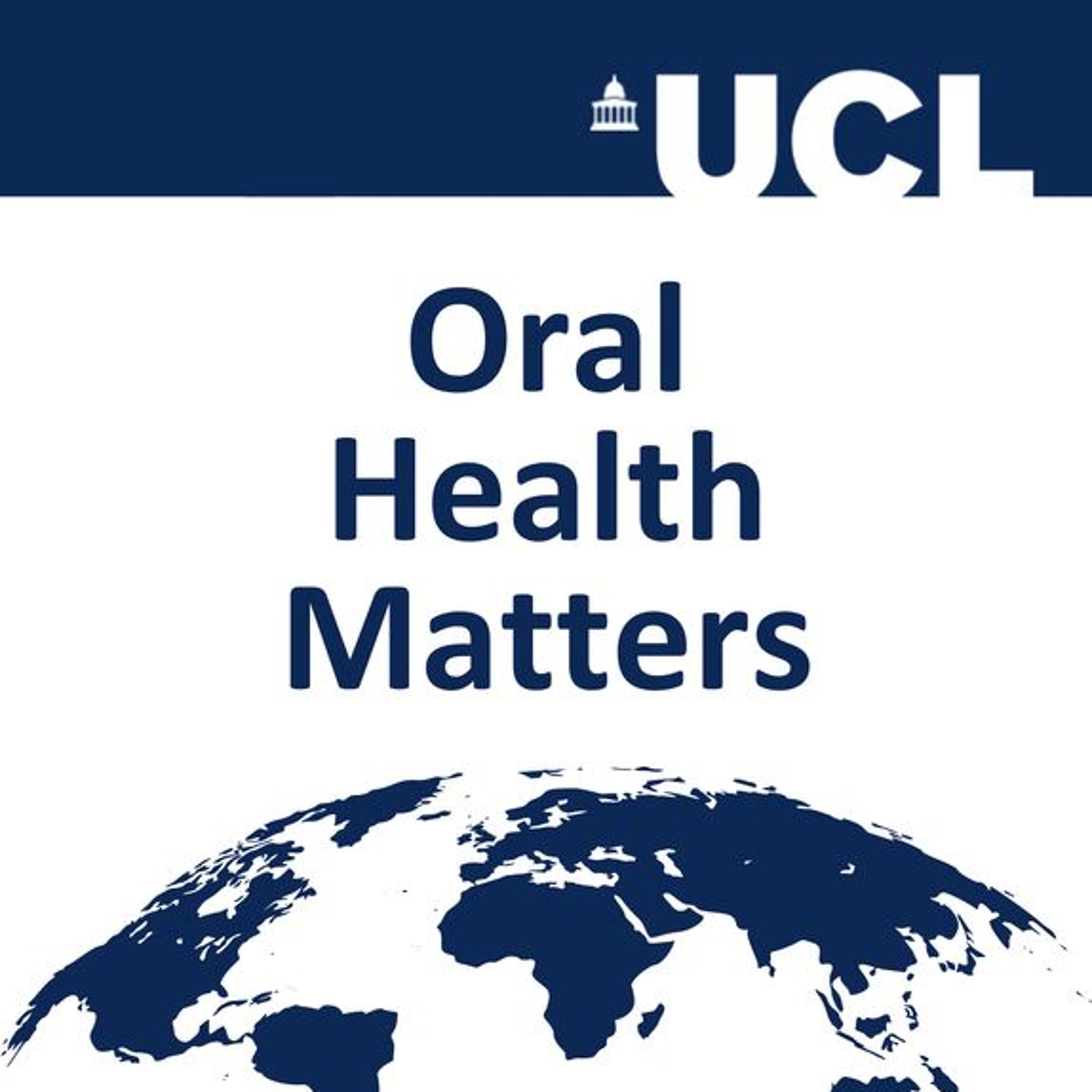 UCL MindsOral health research: Challenges and opportunitiesIn Episode 2 we're in conversation with Professor Regina Mutave from the Department of Dental Sciences at the University of Nairobi and Professor Manu Mathur from the Centre for Dental Public Health from Queen Mary University London. We're discussing the challenges and opportunities for oral health research in the global south, asking what’s getting in the way of progress and what we can do about it.
Read a full transcript here: https://researchpodcasts.co.uk/wp-content/uploads/2024/08/OHM-Ep2-trainscript.pdf
Further reading:
Action plan for oral health in South-East Asia 2022–2030 https://www.who.int/publications/i/item/9789290210061
Credits
Presenter: Professor Rich...2024-10-1430 min
UCL MindsOral health research: Challenges and opportunitiesIn Episode 2 we're in conversation with Professor Regina Mutave from the Department of Dental Sciences at the University of Nairobi and Professor Manu Mathur from the Centre for Dental Public Health from Queen Mary University London. We're discussing the challenges and opportunities for oral health research in the global south, asking what’s getting in the way of progress and what we can do about it.
Read a full transcript here: https://researchpodcasts.co.uk/wp-content/uploads/2024/08/OHM-Ep2-trainscript.pdf
Further reading:
Action plan for oral health in South-East Asia 2022–2030 https://www.who.int/publications/i/item/9789290210061
Credits
Presenter: Professor Rich...2024-10-1430 min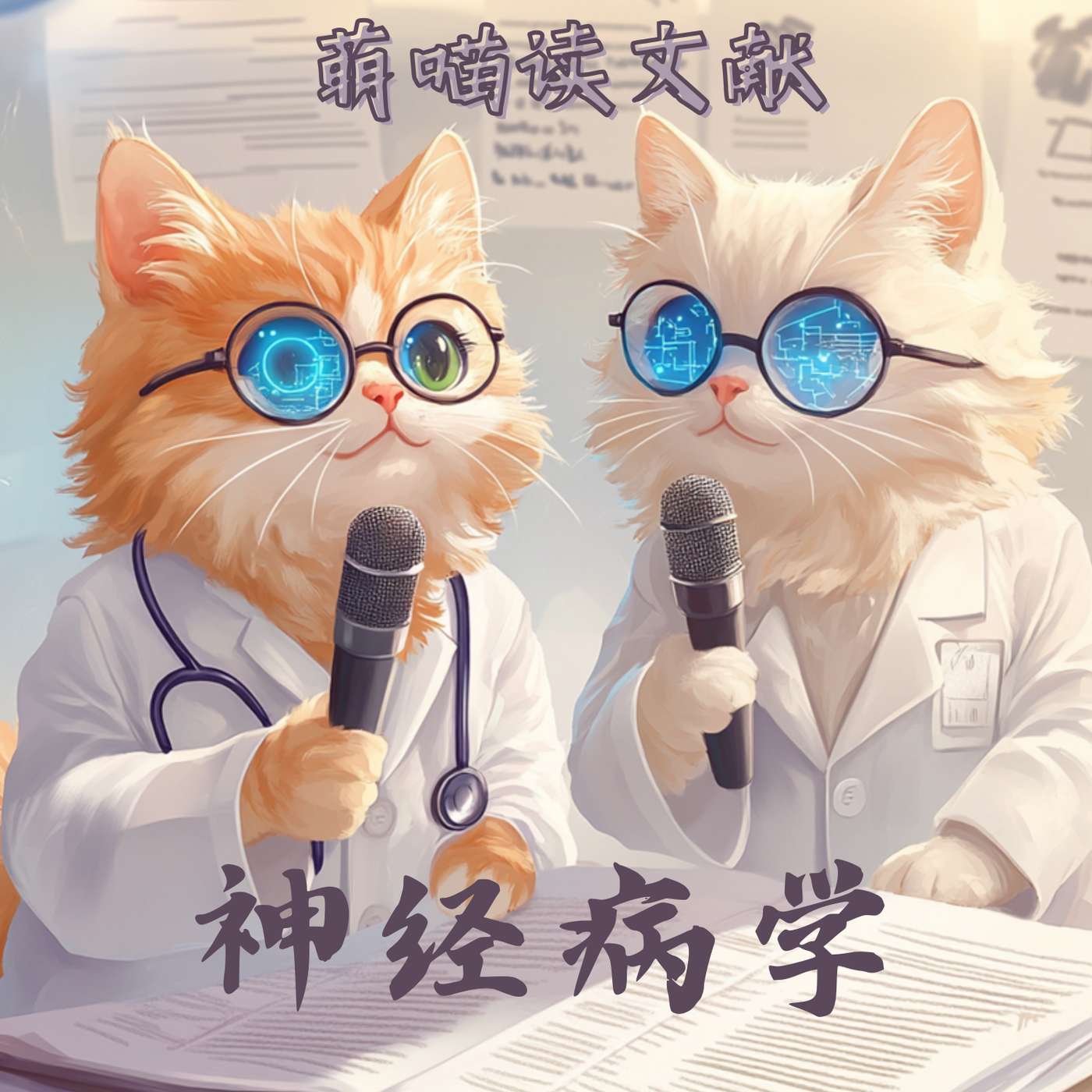 萌喵读文献-神经病学今日神经病学最高分文献 - 2024-10-09Hey there, brainiacs! Today on NeuroBuzz, we're diving into the labyrinth of temporal lobe epilepsy (TLE) and its nasty sidekicks: cognitive decline and microangiopathy. Researchers at UCL Queen Square Institute of Neurology have uncovered a link between white matter microvascular changes and the cognitive slips associated with TLE. They've quantified these pesky vascular alterations and found a correlation with MRI diffusion measurements and cognitive impairment. What's more, this could be a clue to the underlying acquired neurodegenerative processes at play. So, if you're curious about how the brain's plumbing might be affecting its cognitive performance, tune in as we navigate...2024-10-0901 min
萌喵读文献-神经病学今日神经病学最高分文献 - 2024-10-09Hey there, brainiacs! Today on NeuroBuzz, we're diving into the labyrinth of temporal lobe epilepsy (TLE) and its nasty sidekicks: cognitive decline and microangiopathy. Researchers at UCL Queen Square Institute of Neurology have uncovered a link between white matter microvascular changes and the cognitive slips associated with TLE. They've quantified these pesky vascular alterations and found a correlation with MRI diffusion measurements and cognitive impairment. What's more, this could be a clue to the underlying acquired neurodegenerative processes at play. So, if you're curious about how the brain's plumbing might be affecting its cognitive performance, tune in as we navigate...2024-10-0901 min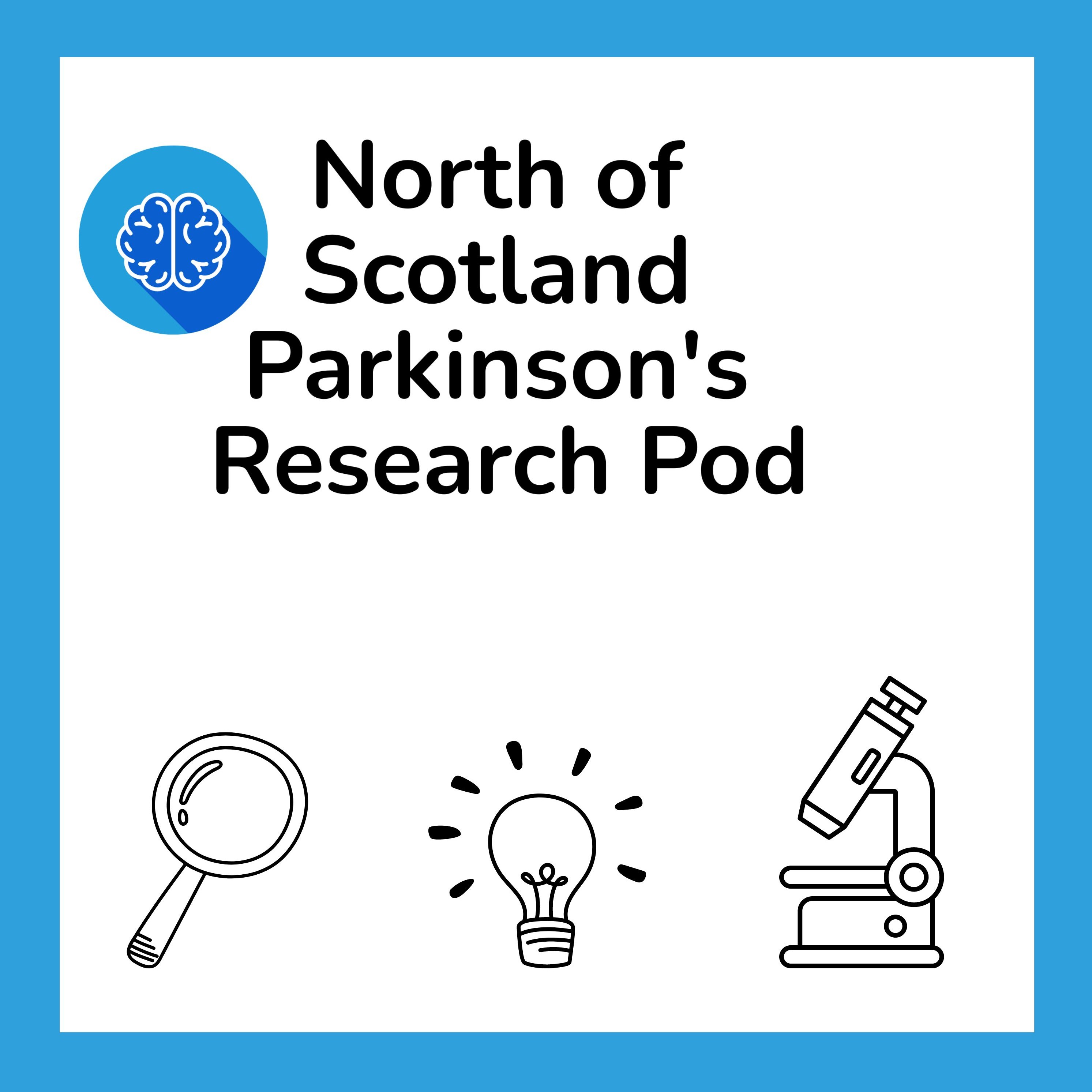 The North of Scotland Parkinson’s Research Podcast SeriesWhy is depression so common in Parkinson’s and how best to manage it.Welcome to part 2 of our special two part podcast to mark World Mental Health Day 2023 on 10th October. Julie Jones and Neil Morrison from NoSPRIG will be joined by Senior Clinical Neuropsychologist Dr Jennifer Foley and mental health specialist Parkinson’s Nurse Emma Edwards
In episode 2, we’ll be taking an in-depth look at depression, another common mental health issue facing people with Parkinson’s.
Dr Jennifer Foley is a senior clinical neuropsychologist at the National Hospital for Neurology and Neurosurgery and Honorary Lecturer at UCL Queen Square Institute of Neurology in London...2024-10-0737 min
The North of Scotland Parkinson’s Research Podcast SeriesWhy is depression so common in Parkinson’s and how best to manage it.Welcome to part 2 of our special two part podcast to mark World Mental Health Day 2023 on 10th October. Julie Jones and Neil Morrison from NoSPRIG will be joined by Senior Clinical Neuropsychologist Dr Jennifer Foley and mental health specialist Parkinson’s Nurse Emma Edwards
In episode 2, we’ll be taking an in-depth look at depression, another common mental health issue facing people with Parkinson’s.
Dr Jennifer Foley is a senior clinical neuropsychologist at the National Hospital for Neurology and Neurosurgery and Honorary Lecturer at UCL Queen Square Institute of Neurology in London...2024-10-0737 min The North of Scotland Parkinson’s Research Podcast SeriesAnxiety in Parkinson’s - what do we know, what can we learn from research, and practical tips for dealing with the problem.Welcome to part 1 of our special two part podcast to mark World Mental Health Day 2023 on 10th October. Julie Jones and Neil Morrison from NoSPRIG will be joined by Senior Clinical Neuropsychologist Dr Jennifer Foley and mental health specialist Parkinson’s Nurse Emma Edwards
In episode 1, we’ll be taking an in-depth look at anxiety, one of the most common mental health issues facing people with Parkinson’s.
Dr Jennifer Foley is a senior clinical neuropsychologist at the National Hospital for Neurology and Neurosurgery and Honorary Lecturer at UCL Queen Square Institute of Neurolog...2024-10-0731 min
The North of Scotland Parkinson’s Research Podcast SeriesAnxiety in Parkinson’s - what do we know, what can we learn from research, and practical tips for dealing with the problem.Welcome to part 1 of our special two part podcast to mark World Mental Health Day 2023 on 10th October. Julie Jones and Neil Morrison from NoSPRIG will be joined by Senior Clinical Neuropsychologist Dr Jennifer Foley and mental health specialist Parkinson’s Nurse Emma Edwards
In episode 1, we’ll be taking an in-depth look at anxiety, one of the most common mental health issues facing people with Parkinson’s.
Dr Jennifer Foley is a senior clinical neuropsychologist at the National Hospital for Neurology and Neurosurgery and Honorary Lecturer at UCL Queen Square Institute of Neurolog...2024-10-0731 min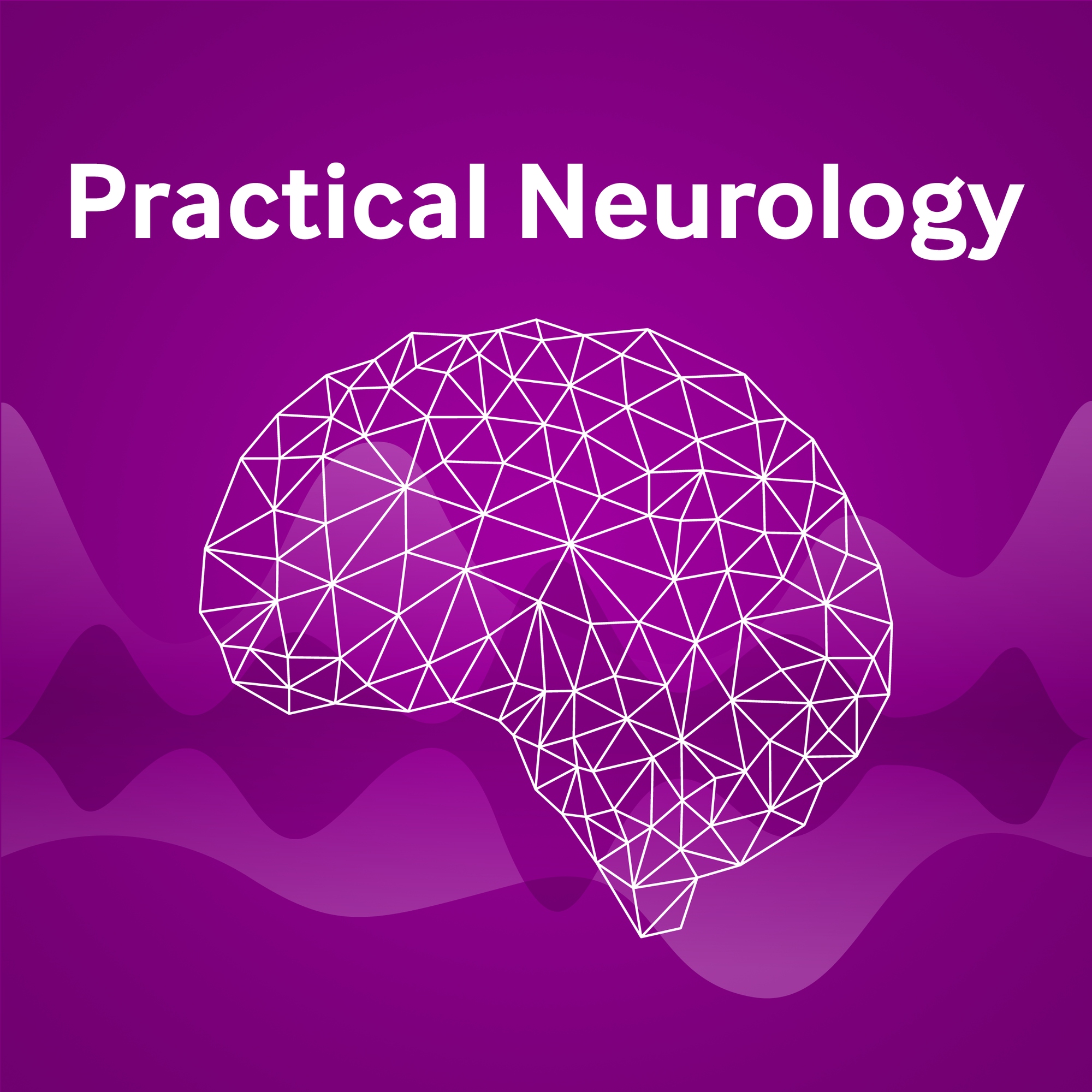 Practical Neurology PodcastLessons and pitfalls of whole genome sequencingGenetic testing is a useful tool for any practising neurologist, but they must know how to interpret the results. This Editors' Choice podcast features two experts on the subject, Prof. Mary Reilly¹ and Dr. Christopher Record¹. They're in the studio to talk through their paper, covering the technology of genome sequencing itself, testing strategies, clinical use cases, and the constant changes in this developing field.
Read the paper:
Lessons and pitfalls of whole genome sequencing
1. Centre for Neuromuscular Diseases, Department of Neuromuscular Diseases, UCL Queen Square Institute of Neurology, London, UK
Pl...2024-08-1937 min
Practical Neurology PodcastLessons and pitfalls of whole genome sequencingGenetic testing is a useful tool for any practising neurologist, but they must know how to interpret the results. This Editors' Choice podcast features two experts on the subject, Prof. Mary Reilly¹ and Dr. Christopher Record¹. They're in the studio to talk through their paper, covering the technology of genome sequencing itself, testing strategies, clinical use cases, and the constant changes in this developing field.
Read the paper:
Lessons and pitfalls of whole genome sequencing
1. Centre for Neuromuscular Diseases, Department of Neuromuscular Diseases, UCL Queen Square Institute of Neurology, London, UK
Pl...2024-08-1937 min Practical Neurology PodcastWhy are brain banks so important, and what can they tell us?Neurodegenerative disease is the subject of this month's Editors' Choice podcast, with Dr. Patrick Cullinane¹ and Dr. Zane Jaunmuktane.¹ They join the podcast for an overview of brain examination, explaining the process of protein misfolding, the spread of pathology through the brain, and what new discoveries can tell us about old diseases.
Read the paper: Pathology of neurodegenerative disease for the general neurologist
1. Queen Square Brain Bank for Neurological Disorders, UCL Queen Square Institute of Neurology, London, UK
Please subscribe to the Practical Neurology podcast on your favourite platform to get the latest ep...2024-06-2739 min
Practical Neurology PodcastWhy are brain banks so important, and what can they tell us?Neurodegenerative disease is the subject of this month's Editors' Choice podcast, with Dr. Patrick Cullinane¹ and Dr. Zane Jaunmuktane.¹ They join the podcast for an overview of brain examination, explaining the process of protein misfolding, the spread of pathology through the brain, and what new discoveries can tell us about old diseases.
Read the paper: Pathology of neurodegenerative disease for the general neurologist
1. Queen Square Brain Bank for Neurological Disorders, UCL Queen Square Institute of Neurology, London, UK
Please subscribe to the Practical Neurology podcast on your favourite platform to get the latest ep...2024-06-2739 min Airing PainDilemmas in Pain Research
Airing Pain 144: Dilemmas in Pain Research
This episode of Airing Pain focuses on the challenges that researchers must overcome when researching pain and developing new treatment approaches. Many questions remain unanswered in the field of pain research. For example, we might know that a treatment works for some people living with pain, but we might not know how it works or why some people benefit and some do not.
So, there is a lot of research being done to try to better understand pain. This leads to another problem: how to cope with the amount of new in...2024-06-1231 min
Airing PainDilemmas in Pain Research
Airing Pain 144: Dilemmas in Pain Research
This episode of Airing Pain focuses on the challenges that researchers must overcome when researching pain and developing new treatment approaches. Many questions remain unanswered in the field of pain research. For example, we might know that a treatment works for some people living with pain, but we might not know how it works or why some people benefit and some do not.
So, there is a lot of research being done to try to better understand pain. This leads to another problem: how to cope with the amount of new in...2024-06-1231 min Practical Neurology PodcastA new guideline for spontaneous intracranial hypotension
The first multidisciplinary consensus guideline for the diagnosis and treatment of spontaneous intracranial hypotension (SIH) has recently been published by the UK SIH Specialist Interest Group. Group members Prof. Manjit Matharu (1), Dr. Indran Davagnanam (2), and Mr. Parag Sayal (3) join Dr. Amy Ross Russell to explain their recommendations. They discuss the impact this condition has on patients, the possible presentations, and approaches for diagnosis and treatment.
Read the article: Spontaneous intracranial hypotension
(1) Department of Brain Repair and Rehabilitation, UCL Queen Square Institute of Neurology, London, UK
(2) Lysholm Department of Neuroradiology, National Hospital for Neurology and Neurosurgery, London, UK
(3) Vi...2024-04-2341 min
Practical Neurology PodcastA new guideline for spontaneous intracranial hypotension
The first multidisciplinary consensus guideline for the diagnosis and treatment of spontaneous intracranial hypotension (SIH) has recently been published by the UK SIH Specialist Interest Group. Group members Prof. Manjit Matharu (1), Dr. Indran Davagnanam (2), and Mr. Parag Sayal (3) join Dr. Amy Ross Russell to explain their recommendations. They discuss the impact this condition has on patients, the possible presentations, and approaches for diagnosis and treatment.
Read the article: Spontaneous intracranial hypotension
(1) Department of Brain Repair and Rehabilitation, UCL Queen Square Institute of Neurology, London, UK
(2) Lysholm Department of Neuroradiology, National Hospital for Neurology and Neurosurgery, London, UK
(3) Vi...2024-04-2341 min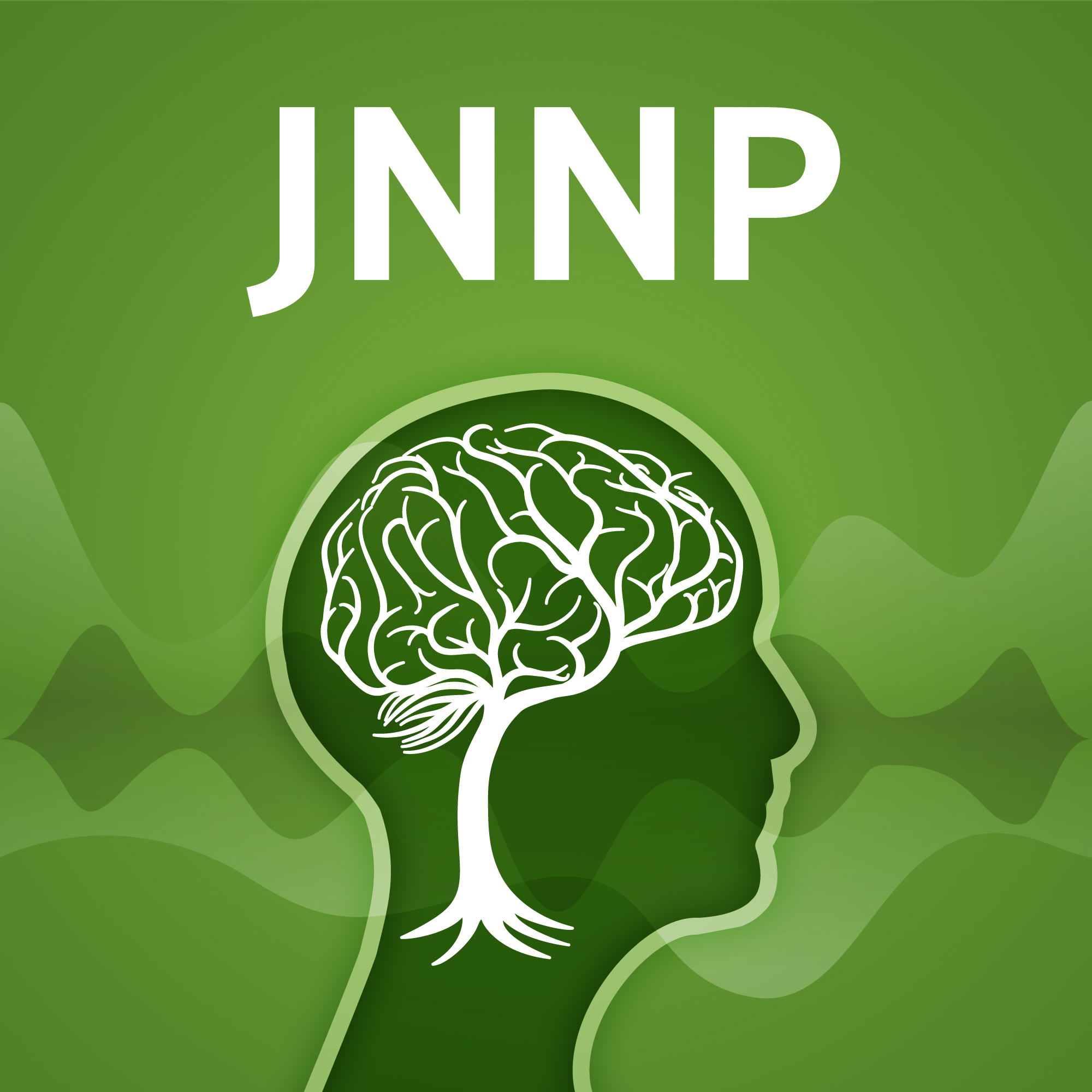 JNNP PodcastNutritional peripheral neuropathies, with Dr. Alexander RossorThe cause of a nutritional neuropathy may not always be obvious when first examining a patient. Restrictive diets with roots in religious practices or personal preferences will be less familiar to neurologists than issues involving bariatric surgery or diseases of malabsorption, and can present as being not overtly malnourished. A recent review in JNNP details links between B-vitamin deficiencies and peripheral neuropathy, and discusses historical trends in the occurrence of nutritional neuropathies. The review's last author, Dr. Alexander Rossor (1), joins host Dr. Saima Chaudhry (2) to talk through how to approach this diagnosis.
Read the paper h...2024-04-1739 min
JNNP PodcastNutritional peripheral neuropathies, with Dr. Alexander RossorThe cause of a nutritional neuropathy may not always be obvious when first examining a patient. Restrictive diets with roots in religious practices or personal preferences will be less familiar to neurologists than issues involving bariatric surgery or diseases of malabsorption, and can present as being not overtly malnourished. A recent review in JNNP details links between B-vitamin deficiencies and peripheral neuropathy, and discusses historical trends in the occurrence of nutritional neuropathies. The review's last author, Dr. Alexander Rossor (1), joins host Dr. Saima Chaudhry (2) to talk through how to approach this diagnosis.
Read the paper h...2024-04-1739 min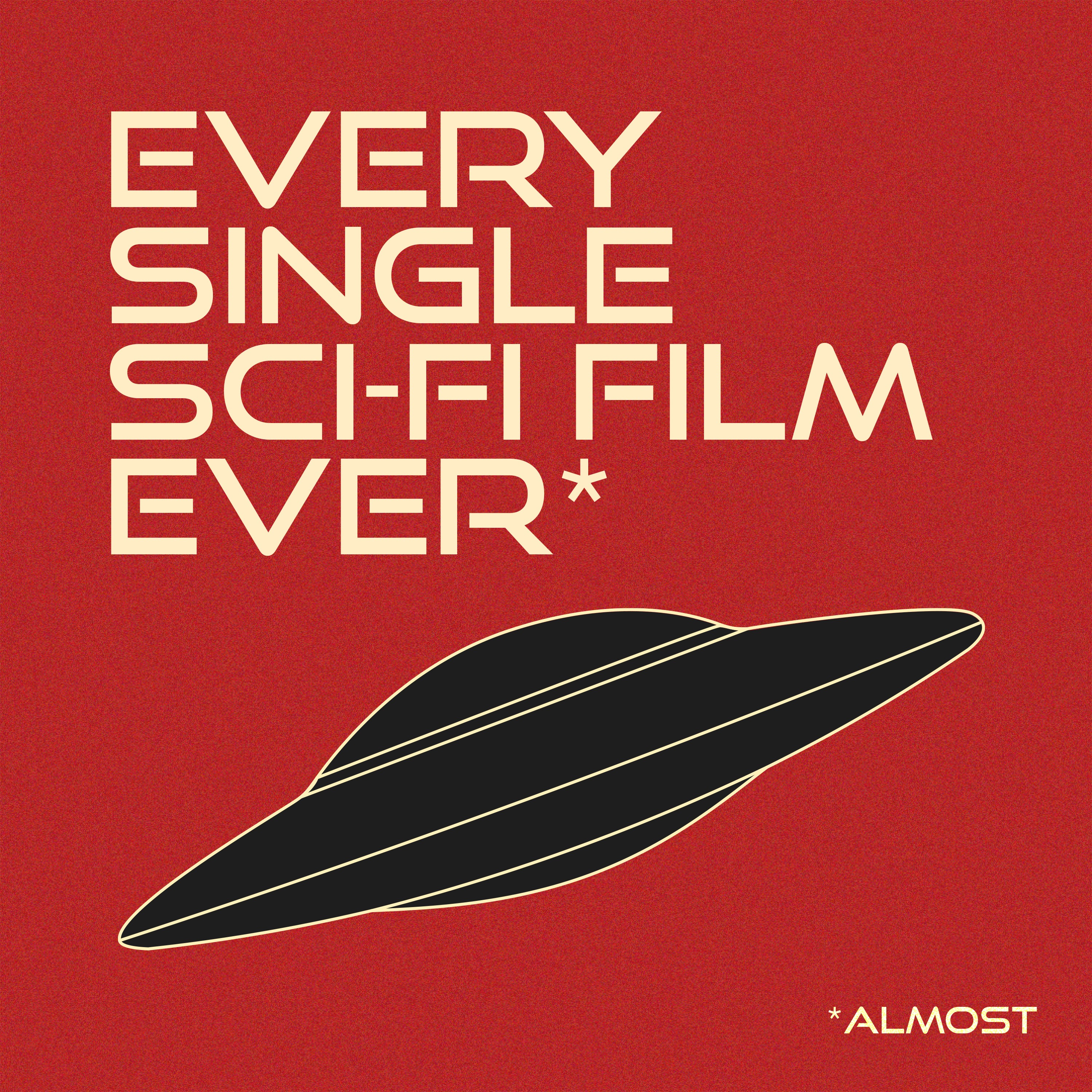 Every Single Sci-Fi Film Ever*Aelita: The 100 Year Old Queen of MarsAs with all episodes of this podcast there are spoilers ahead! You can watch Aelita Queen of Mars (1924) here. For full shownotes visit the watch page for this episode on the website: https://www.everyscififilm.com/watch Lenin, the leader of the Russian revolution and the new soviet Russia declared “cinema is for us the most important of the arts”. He recognised the power of film to reach a wide range of audiences and its potential as propaganda. The country was struggling as was its film industry which was nationalised in 1919. In the first...2024-04-1451 min
Every Single Sci-Fi Film Ever*Aelita: The 100 Year Old Queen of MarsAs with all episodes of this podcast there are spoilers ahead! You can watch Aelita Queen of Mars (1924) here. For full shownotes visit the watch page for this episode on the website: https://www.everyscififilm.com/watch Lenin, the leader of the Russian revolution and the new soviet Russia declared “cinema is for us the most important of the arts”. He recognised the power of film to reach a wide range of audiences and its potential as propaganda. The country was struggling as was its film industry which was nationalised in 1919. In the first...2024-04-1451 min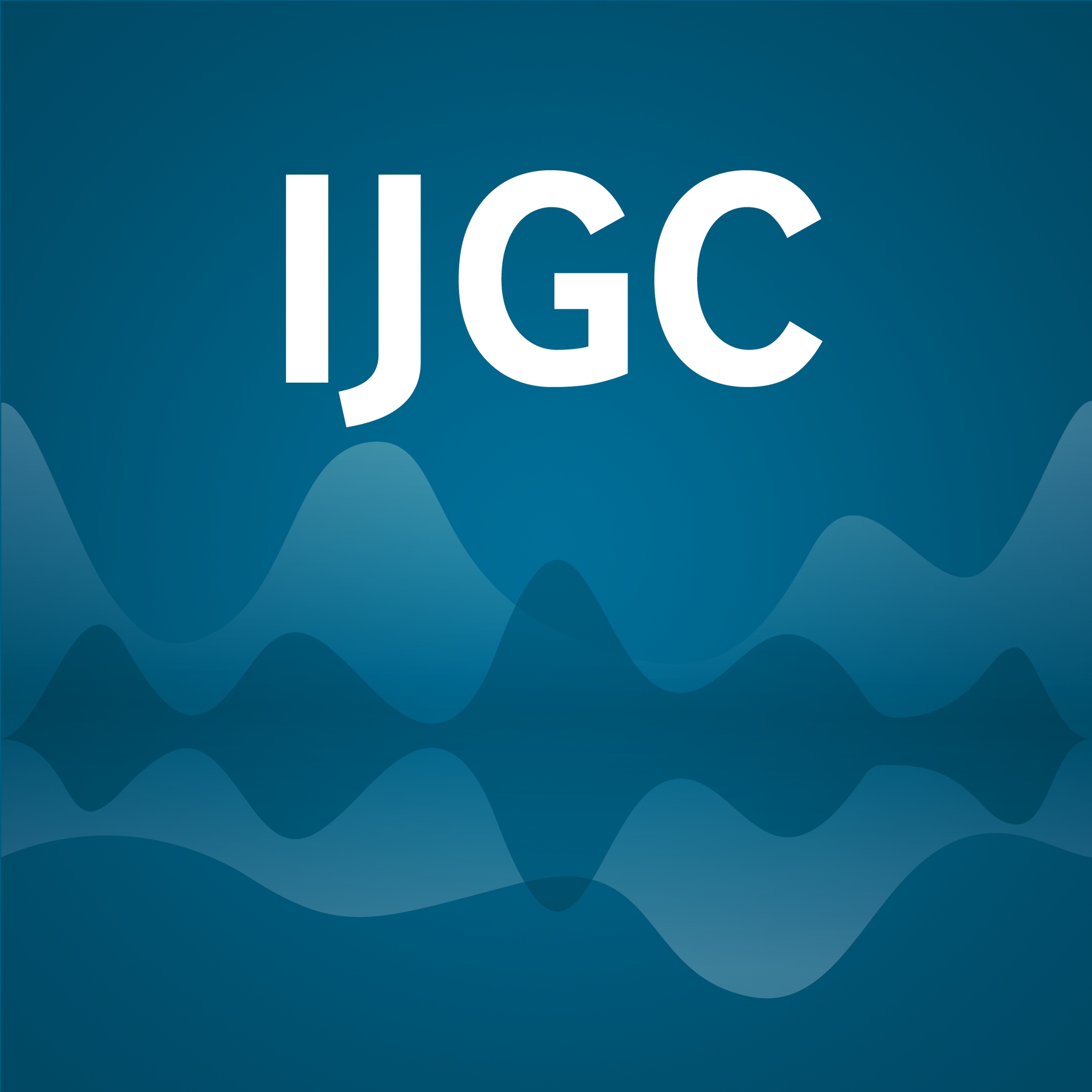 IJGC PodcastIDEAL Framework: Robotics Innovation and Evaluation with Hani MarcusIn this episode of the IJGC podcast, Editor-in-Chief Dr. Pedro Ramirez is joined by Mr. Hani Marcus to discuss the IDEAL Framework. Mr. Marcus is a Consultant Neurosurgeon at the National Hospital for Neurology and Neurosurgery and Honorary Associate Professor at the UCL Queen Square Institute of Neurology.
Highlights:
- The development of the next generation of surgical robotics presents unique challenges in evaluation due to their complexity, integration with AI, and potential for system disruption.
- The IDEAL (Idea, Development, Exploration, Assessment, and Long-term monitoring) Robotics colloquium suggests practical recommendations f...2024-03-1134 min
IJGC PodcastIDEAL Framework: Robotics Innovation and Evaluation with Hani MarcusIn this episode of the IJGC podcast, Editor-in-Chief Dr. Pedro Ramirez is joined by Mr. Hani Marcus to discuss the IDEAL Framework. Mr. Marcus is a Consultant Neurosurgeon at the National Hospital for Neurology and Neurosurgery and Honorary Associate Professor at the UCL Queen Square Institute of Neurology.
Highlights:
- The development of the next generation of surgical robotics presents unique challenges in evaluation due to their complexity, integration with AI, and potential for system disruption.
- The IDEAL (Idea, Development, Exploration, Assessment, and Long-term monitoring) Robotics colloquium suggests practical recommendations f...2024-03-1134 min Medical Women TalkingSeason 3 Episode 6: Dr Kate OrdidgeIn this episode, Jane Dacre talks to Dr Katherine Ordidge. Kate is a Consultant Radiologist at Barts Health NHS Trust, London and Honorary Senior Clinical Lecturer at Queen Mary University of London, UK. She graduated from University College London (UCL) Medical School in 2007, with an intercalated BSc in Medical Physics and Bioengineering. Kate and Jane discuss radiology career paths and the barriers faced by female radiologists, plus the importance of finding a good mentor and having a strong support network in the medical field.For the transcript: https://www.ucl.ac.uk/medical-sciences/medical-women-talking-podcast Da...2024-03-0431 min
Medical Women TalkingSeason 3 Episode 6: Dr Kate OrdidgeIn this episode, Jane Dacre talks to Dr Katherine Ordidge. Kate is a Consultant Radiologist at Barts Health NHS Trust, London and Honorary Senior Clinical Lecturer at Queen Mary University of London, UK. She graduated from University College London (UCL) Medical School in 2007, with an intercalated BSc in Medical Physics and Bioengineering. Kate and Jane discuss radiology career paths and the barriers faced by female radiologists, plus the importance of finding a good mentor and having a strong support network in the medical field.For the transcript: https://www.ucl.ac.uk/medical-sciences/medical-women-talking-podcast Da...2024-03-0431 min Create the FutureThe Future of RepairsDo you know how to fix a kettle? Or your smartphone? Or a lightsaber, for that matter?Professor Mark Miodownik (UCL Mechanical Engineering) believes we urgently need a "repairability revolution" to reduce the vast quantities of electrical and electronic waste produced each year. He chats to host Roma Agrawal MBE.Follow @QEPrize on Twitter, Instagram, and Facebook for more info.New episodes - conversations about how to rebuild the world better - every other Friday. Hosted on Acast. See acast.com/privacy for more information.2024-02-2332 min
Create the FutureThe Future of RepairsDo you know how to fix a kettle? Or your smartphone? Or a lightsaber, for that matter?Professor Mark Miodownik (UCL Mechanical Engineering) believes we urgently need a "repairability revolution" to reduce the vast quantities of electrical and electronic waste produced each year. He chats to host Roma Agrawal MBE.Follow @QEPrize on Twitter, Instagram, and Facebook for more info.New episodes - conversations about how to rebuild the world better - every other Friday. Hosted on Acast. See acast.com/privacy for more information.2024-02-2332 min UCL MindsS1, E1 Perinatal Mental Health with Dr Kate AdlingtonMental health illnesses that occur during pregnancy or in the first year following the birth of a child, affect 27% of new and expectant mothers in the UK. Common negative stigmatising perceptions are often what prevent people from speaking out and seeking help. Dr Kate Adlington is an Academic Clinical Fellow at Queen Mary University London and a Higher Trainee in General Adult Psychiatry in the East London NHS Foundation Trust. In this month’s episode, Shakira and Iman talk to Kate about perinatal mental health, the pressures of being a new mother (including feeling lonely and the social detriments of pr...2024-02-2041 min
UCL MindsS1, E1 Perinatal Mental Health with Dr Kate AdlingtonMental health illnesses that occur during pregnancy or in the first year following the birth of a child, affect 27% of new and expectant mothers in the UK. Common negative stigmatising perceptions are often what prevent people from speaking out and seeking help. Dr Kate Adlington is an Academic Clinical Fellow at Queen Mary University London and a Higher Trainee in General Adult Psychiatry in the East London NHS Foundation Trust. In this month’s episode, Shakira and Iman talk to Kate about perinatal mental health, the pressures of being a new mother (including feeling lonely and the social detriments of pr...2024-02-2041 min Queen Elizabeth Olympic Park PodLyn Garner & Peter Hendy in conversation on Queen Elizabeth Olympic ParkIt’s been another incredibly busy year on Queen Elizabeth Olympic Park. From thousands of students now studying at UCL East and the London College of Fashion campuses, the return of world class athletics at London Stadium, to the launch of the New Talent Future Leaders Programme, it’s been another busy and successful year on the Park. And in 2024 there’ll be much more to come, as well as the evolution of the LLDC. This is the Queen Elizabeth Olympic Park Podcast with Lyn Garner, Chief Executive of the LLDC and Peter...2023-12-0716 min
Queen Elizabeth Olympic Park PodLyn Garner & Peter Hendy in conversation on Queen Elizabeth Olympic ParkIt’s been another incredibly busy year on Queen Elizabeth Olympic Park. From thousands of students now studying at UCL East and the London College of Fashion campuses, the return of world class athletics at London Stadium, to the launch of the New Talent Future Leaders Programme, it’s been another busy and successful year on the Park. And in 2024 there’ll be much more to come, as well as the evolution of the LLDC. This is the Queen Elizabeth Olympic Park Podcast with Lyn Garner, Chief Executive of the LLDC and Peter...2023-12-0716 min Practical Neurology PodcastClimate change and the brain, with Prof. Sanjay SisodiyaIn this extra episode of the PN podcast, recorded to coincide with the COP28 summit, podcast editor Dr. Amy Ross-Russell (1) speaks to Prof. Sanjay Sisodiya (2) about his paper, "The hot brain: Practical climate change advice for neurologists". They discuss the role that neurologists have to play in treating and guiding patients as they find themselves exposed to shifts in their habitual climate.
Read the paper: https://pn.bmj.com/content/early/2023/11/10/pn-2023-003777
(1) Neurology, University Hospital Southampton NHS Foundation Trust, UK
(2) Department of Clinical and Experimental Epilepsy, UCL Queen Square Institute of Neurology, London, U...2023-12-0124 min
Practical Neurology PodcastClimate change and the brain, with Prof. Sanjay SisodiyaIn this extra episode of the PN podcast, recorded to coincide with the COP28 summit, podcast editor Dr. Amy Ross-Russell (1) speaks to Prof. Sanjay Sisodiya (2) about his paper, "The hot brain: Practical climate change advice for neurologists". They discuss the role that neurologists have to play in treating and guiding patients as they find themselves exposed to shifts in their habitual climate.
Read the paper: https://pn.bmj.com/content/early/2023/11/10/pn-2023-003777
(1) Neurology, University Hospital Southampton NHS Foundation Trust, UK
(2) Department of Clinical and Experimental Epilepsy, UCL Queen Square Institute of Neurology, London, U...2023-12-0124 min Queen Elizabeth Olympic Park PodEast Bank opens on Queen Elizabeth Olympic ParkEast Bank - a world-class cultural, educational and innovation district - continues to open on Queen Elizabeth Olympic Park. On 1 November, Sadiq Khan, The Mayor of London, formally welcomed the first students and visitors to UAL’s London College of Fashion on Stratford Waterfront, and UCL East on the south side of the Park. And this is just the start, with Sadler’s Wells, BBC Music Studios, V&A East Museum and V&A East Storehouse set to open in the coming months and years. This is the Queen...2023-11-1412 min
Queen Elizabeth Olympic Park PodEast Bank opens on Queen Elizabeth Olympic ParkEast Bank - a world-class cultural, educational and innovation district - continues to open on Queen Elizabeth Olympic Park. On 1 November, Sadiq Khan, The Mayor of London, formally welcomed the first students and visitors to UAL’s London College of Fashion on Stratford Waterfront, and UCL East on the south side of the Park. And this is just the start, with Sadler’s Wells, BBC Music Studios, V&A East Museum and V&A East Storehouse set to open in the coming months and years. This is the Queen...2023-11-1412 min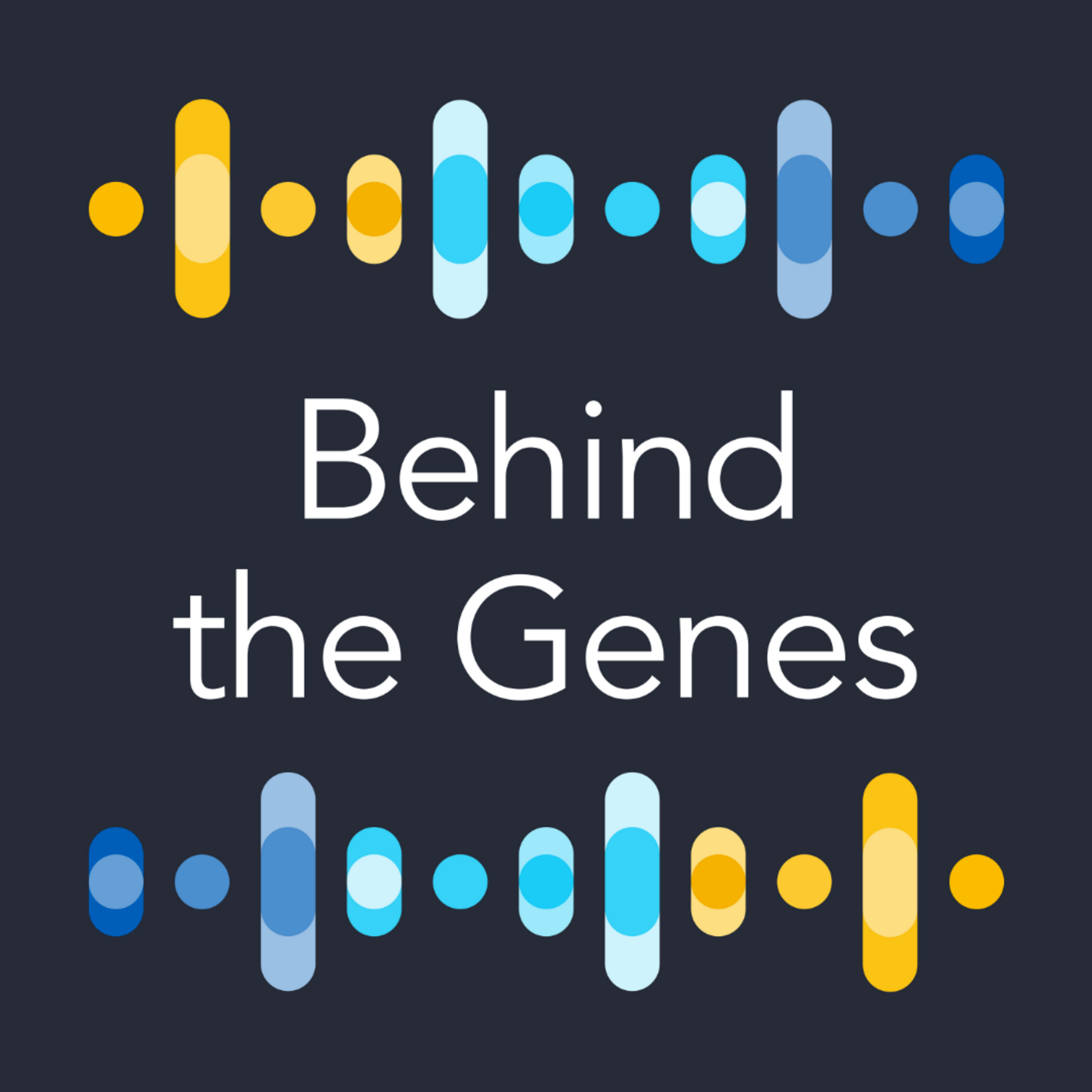 Behind the GenesDr Mie Rizig, Sir John Hardy, Candice King and Will Townley: Why is diversity in Parkinson’s research so important?Unfortunately, please note you may be able to hear some background noise or static during some parts of the recording.
In this episode of the G Word, Candice King, Patient and Public Engagement Manager and Will Townley, Cohorts Manager who both work at the Diverse Data initiative at Genomics England, are joined by Dr Mie Rizig and Sir John Hardy, who both work at University College London (UCL).
This podcast delves into a new paper published by Mie and John in the Lancet Neurology. The paper describes a novel African ancestry Parkinson's disease genetic risk...2023-10-2536 min
Behind the GenesDr Mie Rizig, Sir John Hardy, Candice King and Will Townley: Why is diversity in Parkinson’s research so important?Unfortunately, please note you may be able to hear some background noise or static during some parts of the recording.
In this episode of the G Word, Candice King, Patient and Public Engagement Manager and Will Townley, Cohorts Manager who both work at the Diverse Data initiative at Genomics England, are joined by Dr Mie Rizig and Sir John Hardy, who both work at University College London (UCL).
This podcast delves into a new paper published by Mie and John in the Lancet Neurology. The paper describes a novel African ancestry Parkinson's disease genetic risk...2023-10-2536 min Create the FutureDisability & Neurodiversity In EngineeringHow can engineering become more inclusive for disabled and neurodivergent people? And what are the engineering innovations that might make the workplace more accessible in the future? Lara Suzuki and Vint Cerf share their experiences and insights.Larissa Suzuki is a computer scientist, inventor, Chartered Engineer, and entrepreneur, who works with Google, NASA, UCL and the Queen Elizabeth Prize for Engineering among many others. She's neurodivergent (Autism and ADHD).Vinton Cerf is considered one of the ‘fathers of the Internet’, and has been inducted into the National Inventors Hall of Fame. In 2005, Cerf beca...2023-09-2929 min
Create the FutureDisability & Neurodiversity In EngineeringHow can engineering become more inclusive for disabled and neurodivergent people? And what are the engineering innovations that might make the workplace more accessible in the future? Lara Suzuki and Vint Cerf share their experiences and insights.Larissa Suzuki is a computer scientist, inventor, Chartered Engineer, and entrepreneur, who works with Google, NASA, UCL and the Queen Elizabeth Prize for Engineering among many others. She's neurodivergent (Autism and ADHD).Vinton Cerf is considered one of the ‘fathers of the Internet’, and has been inducted into the National Inventors Hall of Fame. In 2005, Cerf beca...2023-09-2929 min Practical Neurology PodcastFirst-line immunosuppression in neuromuscular diseasesDr. Amy Ross Russell (1) is joined by the authors of the paper “First-line immunosuppression in neuromuscular diseases”, Dr Michael Foster, Prof Michael Lunn, Dr Aisling Carr (2).
Read this latest Editor’s Choice paper on the Practical Neurology website (https://pn.bmj.com/content/23/4/327) and the August print issue of the journal. The paper is also discussed by the Practical Neurology editors, Dr. Phil Smith and Dr. Geraint Fuller, in their latest podcast: https://pnbmj.podbean.com/e/editors-highlights-of-the-august-2023-issue/
(1) Neurology, University Hospital Southampton NHS Foundation Trust, UK
(2) UCL Queen Square Institute of Neurology, Facult...2023-08-2441 min
Practical Neurology PodcastFirst-line immunosuppression in neuromuscular diseasesDr. Amy Ross Russell (1) is joined by the authors of the paper “First-line immunosuppression in neuromuscular diseases”, Dr Michael Foster, Prof Michael Lunn, Dr Aisling Carr (2).
Read this latest Editor’s Choice paper on the Practical Neurology website (https://pn.bmj.com/content/23/4/327) and the August print issue of the journal. The paper is also discussed by the Practical Neurology editors, Dr. Phil Smith and Dr. Geraint Fuller, in their latest podcast: https://pnbmj.podbean.com/e/editors-highlights-of-the-august-2023-issue/
(1) Neurology, University Hospital Southampton NHS Foundation Trust, UK
(2) UCL Queen Square Institute of Neurology, Facult...2023-08-2441 min AI at DawnAI uses stem cell imagery to accurately predict four types of Parkinson's diseaseEpisode 17 - 17 August 2023
In a collaboration between Faculty AI, the Francis Crick Institute, and UCL Queen Square, a newly developed AI tool can accurately predict four distinct types of Parkinson's disease.
DeepMind, Google's leading AI unit, is pushing the boundaries and venturing into a new domain: life advice.
Attorneys for The Times are contemplating legal action against OpenAI, arguing that the tech giant's AI tools, like ChatGPT, draw heavily from journalistic content produced by The Times' staff.
OpenAI has acquired Global Illumination - a New York-based AI startup renowned f...2023-08-1706 min
AI at DawnAI uses stem cell imagery to accurately predict four types of Parkinson's diseaseEpisode 17 - 17 August 2023
In a collaboration between Faculty AI, the Francis Crick Institute, and UCL Queen Square, a newly developed AI tool can accurately predict four distinct types of Parkinson's disease.
DeepMind, Google's leading AI unit, is pushing the boundaries and venturing into a new domain: life advice.
Attorneys for The Times are contemplating legal action against OpenAI, arguing that the tech giant's AI tools, like ChatGPT, draw heavily from journalistic content produced by The Times' staff.
OpenAI has acquired Global Illumination - a New York-based AI startup renowned f...2023-08-1706 min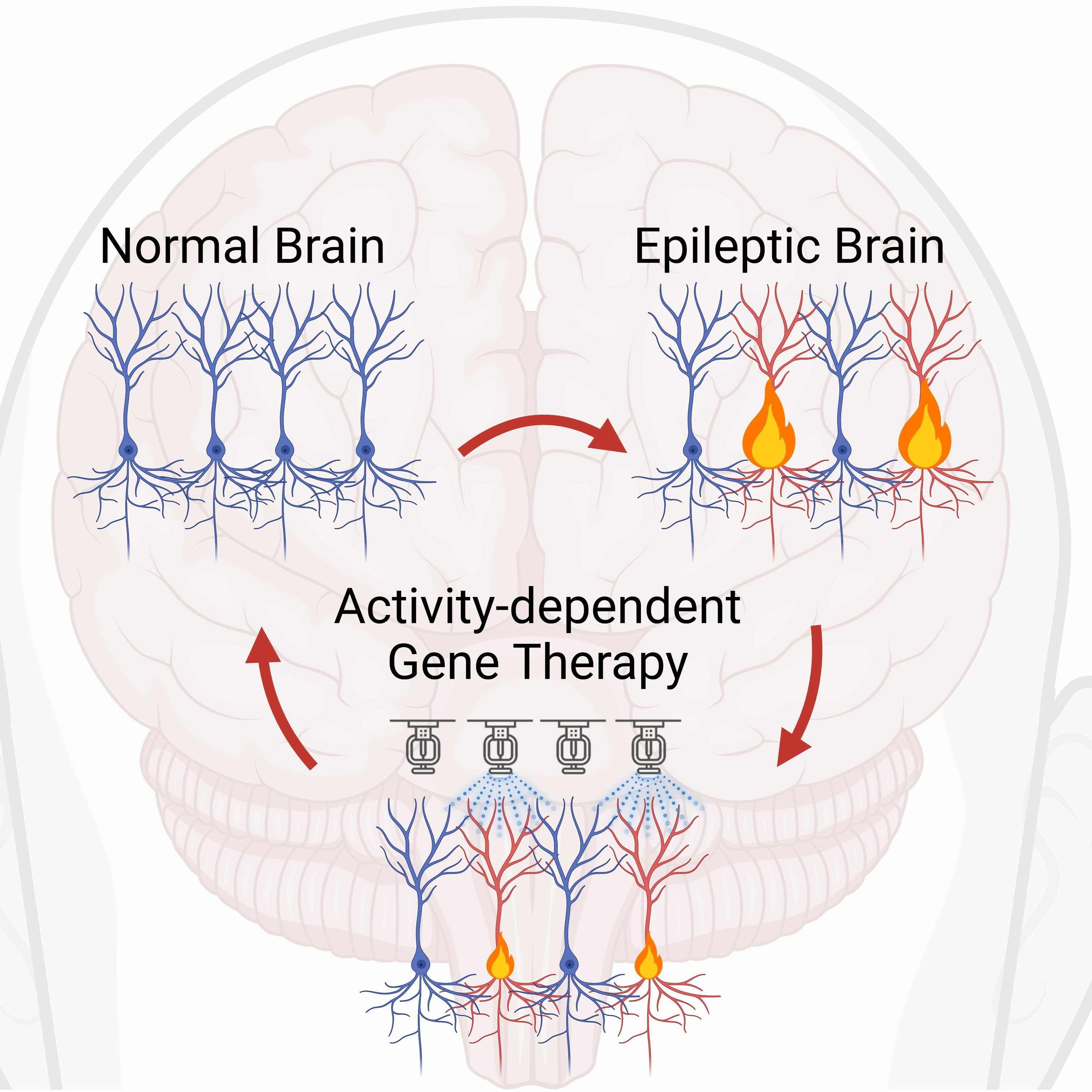 UCL MindsNovel ways to treat the brain with gene therapyDate of Lecture: Thursday 15 June 2023
About the Lecture:
Several neurodevelopmental and neuropsychiatric circuit disorders are characterized by intermittent episodes of pathological activity. Although genetic therapies offer the ability to modulate neuronal excitability, a limiting factor is that they do not discriminate between neurons involved in circuit pathologies and ‘healthy’ surrounding/intermingled neurons. Dr Lignani will present his recent study where he described a gene therapy strategy that down-regulates the excitability of overactive neurons in closed loop and tested it in models of epilepsy as proof of principle. This novel way of thinking can be applied to many neurological diseases such as s...2023-07-0459 min
UCL MindsNovel ways to treat the brain with gene therapyDate of Lecture: Thursday 15 June 2023
About the Lecture:
Several neurodevelopmental and neuropsychiatric circuit disorders are characterized by intermittent episodes of pathological activity. Although genetic therapies offer the ability to modulate neuronal excitability, a limiting factor is that they do not discriminate between neurons involved in circuit pathologies and ‘healthy’ surrounding/intermingled neurons. Dr Lignani will present his recent study where he described a gene therapy strategy that down-regulates the excitability of overactive neurons in closed loop and tested it in models of epilepsy as proof of principle. This novel way of thinking can be applied to many neurological diseases such as s...2023-07-0459 min Practical Neurology PodcastMultiple system atrophy, with Dr. Yee Yen Goh and Dr. Viorica ChelbanDr. Amy Ross Russell (1) is joined by the authors of "Multiple system atrophy", a review recently published in Practical Neurology. The guests, Dr. Yee Yen Goh (2), and Dr. Viorica Chelban (2), detail the effects of this condition, describe its detection, and provide information on the support that patients can receive.
Read this latest Editor’s Choice paper on the Practical Neurology website (https://pn.bmj.com/content/23/3/208) and the June print issue of the journal. The paper is also discussed by the Practical Neurology editors, Dr. Phil Smith and Dr. Geraint Fuller, in their latest podcast: https://pnbmj.pod...2023-06-2341 min
Practical Neurology PodcastMultiple system atrophy, with Dr. Yee Yen Goh and Dr. Viorica ChelbanDr. Amy Ross Russell (1) is joined by the authors of "Multiple system atrophy", a review recently published in Practical Neurology. The guests, Dr. Yee Yen Goh (2), and Dr. Viorica Chelban (2), detail the effects of this condition, describe its detection, and provide information on the support that patients can receive.
Read this latest Editor’s Choice paper on the Practical Neurology website (https://pn.bmj.com/content/23/3/208) and the June print issue of the journal. The paper is also discussed by the Practical Neurology editors, Dr. Phil Smith and Dr. Geraint Fuller, in their latest podcast: https://pnbmj.pod...2023-06-2341 min Reinforcement TalkingAI in MedicineAI is considered to have one of the greatest impacts on medicine. Speaking with an expert in the field, a Professor of Neurology at UCL Queen Square Institute of Neurology, Parashkev Nachev, we discuss how data science and AI are transforming healthcare. Talking about AI assisting clinicians in diagnosis, we question whether knowledge of genetic code will be able to facilitate decision-making. How do we eliminate biases and protect data in pursuit of individual treatment? Will doctors ever be replaced by robots?
We then converse about neurology and Computational Neuroscience discussing the possibilities of future brain modelling...2023-04-0642 min
Reinforcement TalkingAI in MedicineAI is considered to have one of the greatest impacts on medicine. Speaking with an expert in the field, a Professor of Neurology at UCL Queen Square Institute of Neurology, Parashkev Nachev, we discuss how data science and AI are transforming healthcare. Talking about AI assisting clinicians in diagnosis, we question whether knowledge of genetic code will be able to facilitate decision-making. How do we eliminate biases and protect data in pursuit of individual treatment? Will doctors ever be replaced by robots?
We then converse about neurology and Computational Neuroscience discussing the possibilities of future brain modelling...2023-04-0642 min UCL Sarah Parker Remond Centre PodcastIn conversation with Musab YounisLuke de Noronha welcomes Musab Younis, senior lecturer in politics and international relations at Queen Mary, University of London, and author of On the Scale of the World: The Formation of Black Anticolonial Thought (University of California Press, 2022). Musab traces the themes and arguments of his important new book, which examines the reverberations of anticolonial ideas that spread across the Atlantic between the two world wars. Musab gathers the work of writers and poets, journalists and editors, historians and political theorists whose insights speak urgently to contemporary movements for liberation. This conversation was record...2023-03-2933 min
UCL Sarah Parker Remond Centre PodcastIn conversation with Musab YounisLuke de Noronha welcomes Musab Younis, senior lecturer in politics and international relations at Queen Mary, University of London, and author of On the Scale of the World: The Formation of Black Anticolonial Thought (University of California Press, 2022). Musab traces the themes and arguments of his important new book, which examines the reverberations of anticolonial ideas that spread across the Atlantic between the two world wars. Musab gathers the work of writers and poets, journalists and editors, historians and political theorists whose insights speak urgently to contemporary movements for liberation. This conversation was record...2023-03-2933 min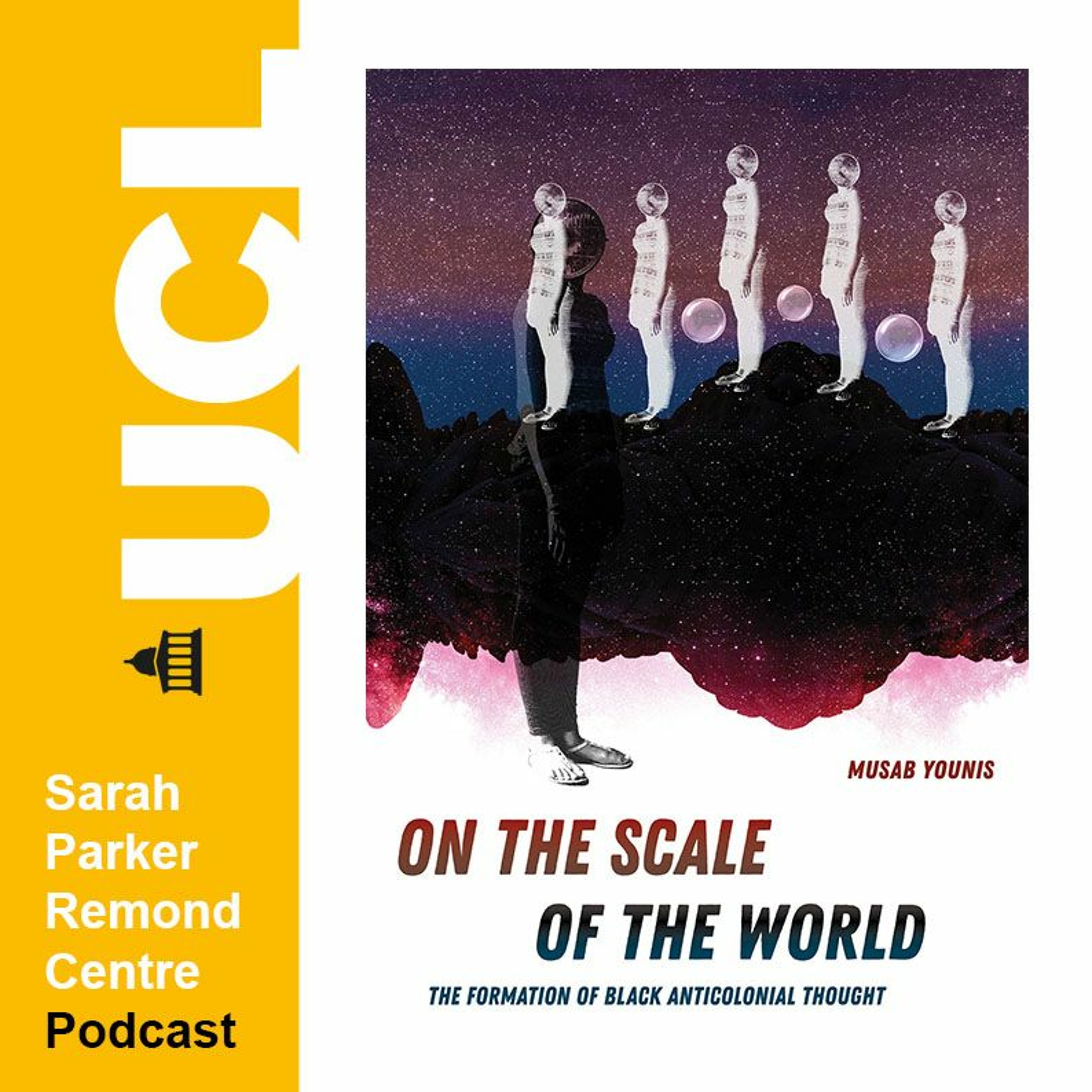 UCL Institute of Advanced StudiesIn conversation with Musab YounisLuke de Noronha welcomes Musab Younis, senior lecturer in politics and international relations at Queen Mary, University of London, and author of On the Scale of the World: The Formation of Black Anticolonial Thought (University of California Press, 2022). Musab traces the themes and arguments of his important new book, which examines the reverberations of anticolonial ideas that spread across the Atlantic between the two world wars. Musab gathers the work of writers and poets, journalists and editors, historians and political theorists whose insights speak urgently to contemporary movements for liberation.
Transcript available here: tbc
www.ucl.ac.uk/racism-racialisation/2023-03-2933 min
UCL Institute of Advanced StudiesIn conversation with Musab YounisLuke de Noronha welcomes Musab Younis, senior lecturer in politics and international relations at Queen Mary, University of London, and author of On the Scale of the World: The Formation of Black Anticolonial Thought (University of California Press, 2022). Musab traces the themes and arguments of his important new book, which examines the reverberations of anticolonial ideas that spread across the Atlantic between the two world wars. Musab gathers the work of writers and poets, journalists and editors, historians and political theorists whose insights speak urgently to contemporary movements for liberation.
Transcript available here: tbc
www.ucl.ac.uk/racism-racialisation/2023-03-2933 min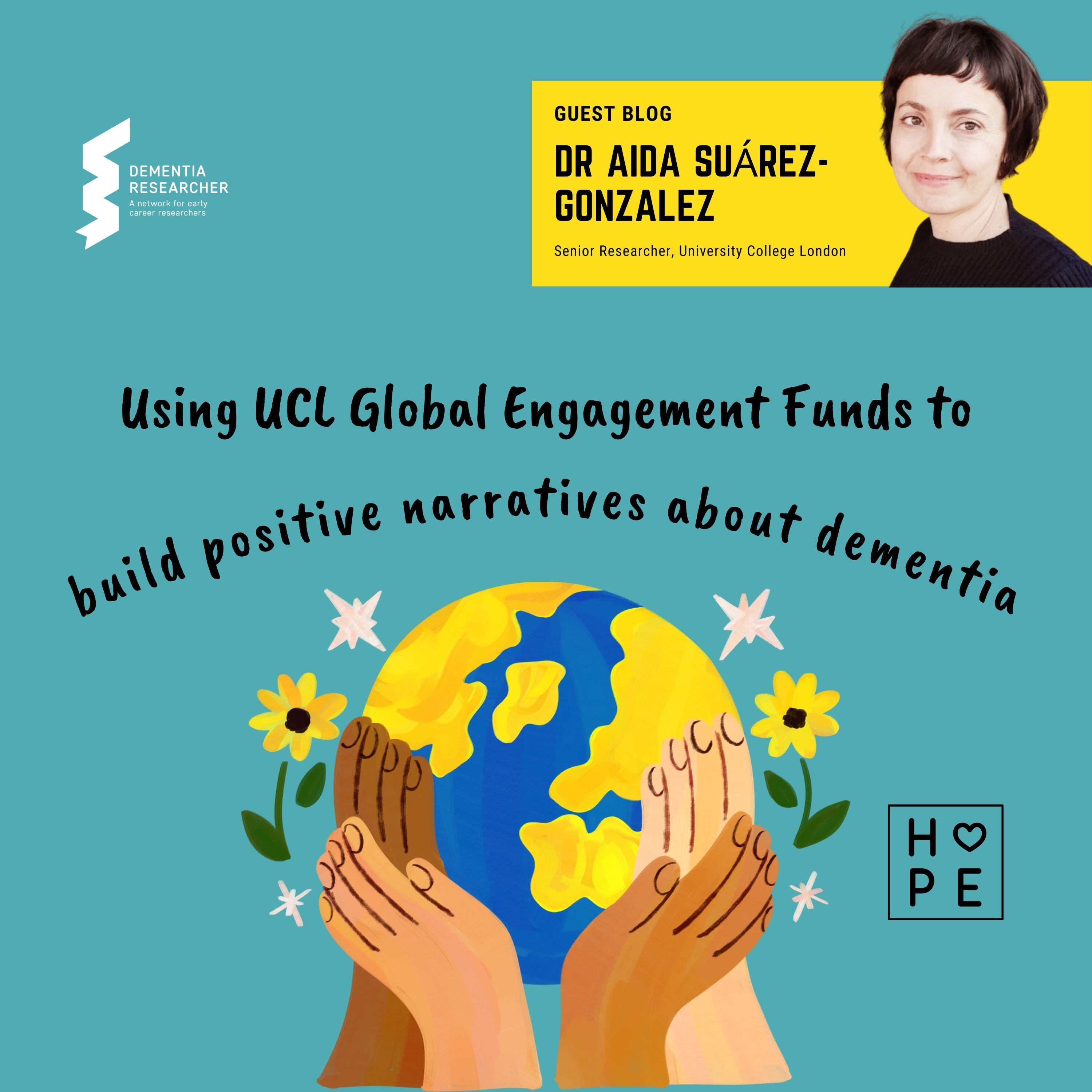 Dementia Researcher BlogsDr Aida Suárez-Gonzalez - Building positive narratives about dementiaDr Aida Suárez-Gonzalez narrates her blog written for Dementia Researcher.
Aida has just been awarded UCL Global Engagement Funds (GEF) for a project to co-produce positive narratives about dementia. The GEF are an exciting seed funding scheme for all sorts of global engagement ideas. In Aida's project, she plans to partne with collaborators at Princeton University and the University of South Carolina. The aim being to co-create an Oliver Sack’s style book about people with posterior cortical atrophy (PCA), primary progressive aphasia (PPA) and dementia with lewy bodies (DLB). And publish it - in this blo...2023-02-0105 min
Dementia Researcher BlogsDr Aida Suárez-Gonzalez - Building positive narratives about dementiaDr Aida Suárez-Gonzalez narrates her blog written for Dementia Researcher.
Aida has just been awarded UCL Global Engagement Funds (GEF) for a project to co-produce positive narratives about dementia. The GEF are an exciting seed funding scheme for all sorts of global engagement ideas. In Aida's project, she plans to partne with collaborators at Princeton University and the University of South Carolina. The aim being to co-create an Oliver Sack’s style book about people with posterior cortical atrophy (PCA), primary progressive aphasia (PPA) and dementia with lewy bodies (DLB). And publish it - in this blo...2023-02-0105 min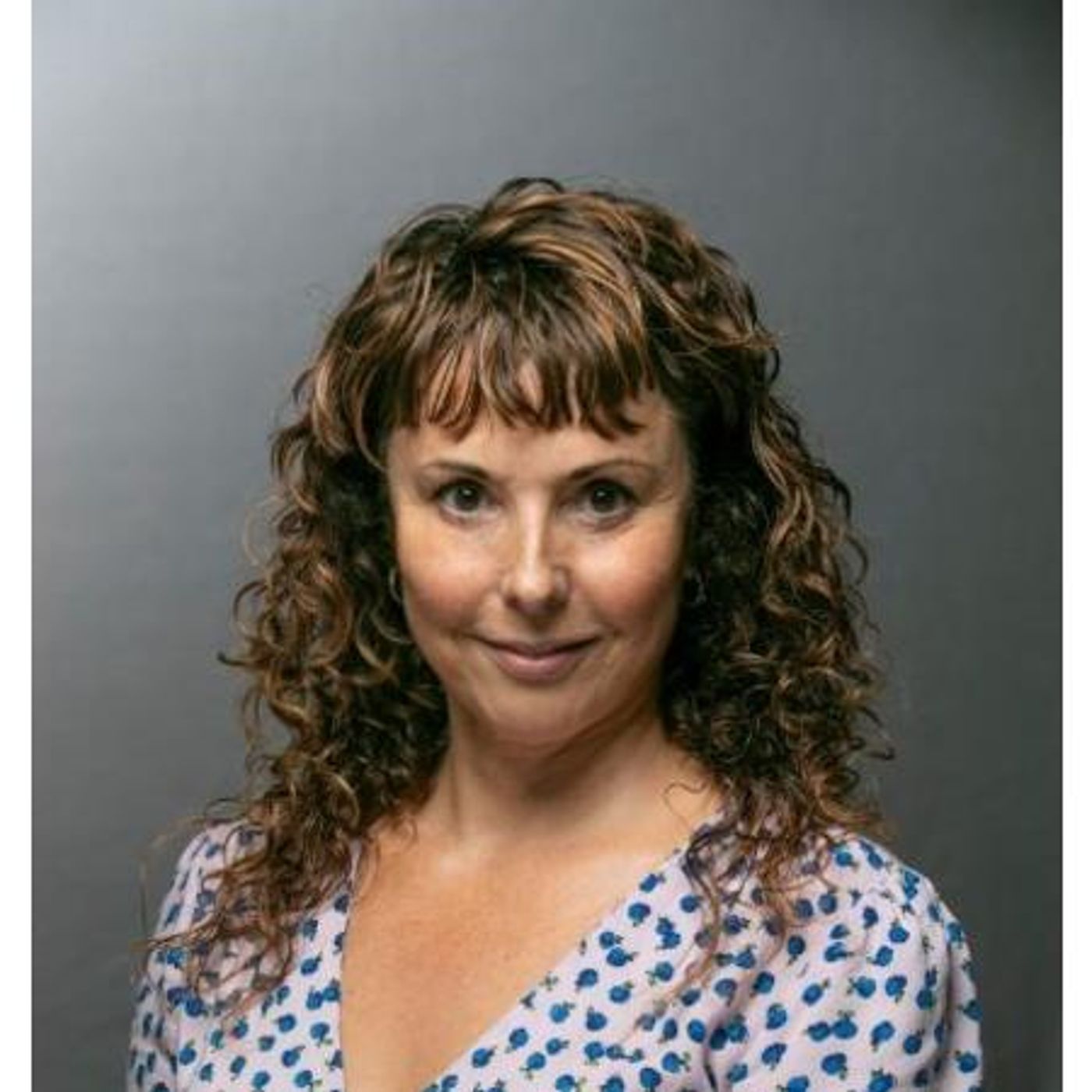 Help 4 HD Live!New HD Staging System with Dr. Sarah TabriziSarah Tabrizi is Director of the UCL Huntington’s Disease (HD) Centre, Joint Head of Department Neurodegenerative Disease at the UCL Queen Square Institute of Neurology, a Principal Investigator at the UK Dementia Research Institute, and Honorary Consultant Neurologist at the National Hospital for Neurology and Neurosurgery. She graduated in Biochemistry, then studied Medicine at the University of Edinburgh where she was awarded the 1992 Leslie Gold Medal for the most distinguished medical graduate. Sarah undertook her PhD and trained as an independent scientist at UCL, establishing a large basic bench science and translational research team focussed on finding disease modifying th...2022-11-2429 min
Help 4 HD Live!New HD Staging System with Dr. Sarah TabriziSarah Tabrizi is Director of the UCL Huntington’s Disease (HD) Centre, Joint Head of Department Neurodegenerative Disease at the UCL Queen Square Institute of Neurology, a Principal Investigator at the UK Dementia Research Institute, and Honorary Consultant Neurologist at the National Hospital for Neurology and Neurosurgery. She graduated in Biochemistry, then studied Medicine at the University of Edinburgh where she was awarded the 1992 Leslie Gold Medal for the most distinguished medical graduate. Sarah undertook her PhD and trained as an independent scientist at UCL, establishing a large basic bench science and translational research team focussed on finding disease modifying th...2022-11-2429 min New HD Staging System with Dr. Sarah TabriziSarah Tabrizi is Director of the UCL Huntington’s Disease (HD) Centre, Joint Head of Department Neurodegenerative Disease at the UCL Queen Square Institute of Neurology, a Principal Investigator at the UK Dementia Research Institute, and Honorary Consultant Neurologist at the National Hospital for Neurology and Neurosurgery. She graduated in Biochemistry, then studied Medicine at the University of Edinburgh where she was awarded the 1992 Leslie Gold Medal for the most distinguished medical graduate. Sarah undertook her PhD and trained as an independent scientist at UCL, establishing a large basic bench science and translational research team focussed on finding disease modifying th...2022-11-2430 min
New HD Staging System with Dr. Sarah TabriziSarah Tabrizi is Director of the UCL Huntington’s Disease (HD) Centre, Joint Head of Department Neurodegenerative Disease at the UCL Queen Square Institute of Neurology, a Principal Investigator at the UK Dementia Research Institute, and Honorary Consultant Neurologist at the National Hospital for Neurology and Neurosurgery. She graduated in Biochemistry, then studied Medicine at the University of Edinburgh where she was awarded the 1992 Leslie Gold Medal for the most distinguished medical graduate. Sarah undertook her PhD and trained as an independent scientist at UCL, establishing a large basic bench science and translational research team focussed on finding disease modifying th...2022-11-2430 min UCL MindsThe State of the WorldFirst released 7 October 2022. This week we’re beginning a new series of the podcast by surveying some of the big issues in politics around the world today. We’ll be covering Ukraine, climate change, the health of democracy in the UK, and much more. The podcast has been on its summer break over the last few months, but politics certainly hasn’t stopped. The war in Ukraine has rumbled on. The global energy crisis, partly a result of the war, has forced policymakers to rethink how energy markets work. The energy crisis intersects with efforts to tackle the climate crisis, which...2022-11-2445 min
UCL MindsThe State of the WorldFirst released 7 October 2022. This week we’re beginning a new series of the podcast by surveying some of the big issues in politics around the world today. We’ll be covering Ukraine, climate change, the health of democracy in the UK, and much more. The podcast has been on its summer break over the last few months, but politics certainly hasn’t stopped. The war in Ukraine has rumbled on. The global energy crisis, partly a result of the war, has forced policymakers to rethink how energy markets work. The energy crisis intersects with efforts to tackle the climate crisis, which...2022-11-2445 min UCL Uncovering PoliticsThe State of the WorldThe podcast has been on its summer break over the last few months, but politics certainly hasn’t stopped. The war in Ukraine has rumbled on. The global energy crisis, partly a result of the war, has forced policymakers to rethink how energy markets work. The energy crisis intersects with efforts to tackle the climate crisis, which have in some ways intensified in the wake of last year’s COP26 meeting in Glasgow. In the UK, Boris Johnson was forced out as Prime Minster and replaced by Liz Truss. And just days after Truss entered office, the death of Quee...2022-10-0745 min
UCL Uncovering PoliticsThe State of the WorldThe podcast has been on its summer break over the last few months, but politics certainly hasn’t stopped. The war in Ukraine has rumbled on. The global energy crisis, partly a result of the war, has forced policymakers to rethink how energy markets work. The energy crisis intersects with efforts to tackle the climate crisis, which have in some ways intensified in the wake of last year’s COP26 meeting in Glasgow. In the UK, Boris Johnson was forced out as Prime Minster and replaced by Liz Truss. And just days after Truss entered office, the death of Quee...2022-10-0745 min The 40 Yard Switch#66 Potter's Chelsea, UCL recap & PL All Star teamsNo Premier League football over last weekend due to the passing of the Queen, but plenty still to talk about with Chelsea's appointment of Graham Potter as their new manager, and the first two game weeks of Champions League football to go through. Also we discuss, what potential All Star teams could look like if Chelsea owner Todd Boehly had his way. 2022-09-1740 min
The 40 Yard Switch#66 Potter's Chelsea, UCL recap & PL All Star teamsNo Premier League football over last weekend due to the passing of the Queen, but plenty still to talk about with Chelsea's appointment of Graham Potter as their new manager, and the first two game weeks of Champions League football to go through. Also we discuss, what potential All Star teams could look like if Chelsea owner Todd Boehly had his way. 2022-09-1740 min Frequency PodcastVol 160. The One Where The Queen DiedThis week’s episode obviously begins with talk about the passing of the Queen (00:00:29)(Not safe for gammons), followed by a discussion about the new Prime Minister & the state of the country (00:18:56).
Kev pays tribute to Battle Rap Legend Pat Stay (00:32:17) before the boys discuss the murder of Chris Kaba at the hands of the Met Police (00:32:17).
Once the serious topics have been covered the boys talk Spoons Vs Forks for eating rice (00:34:39) & who would win in a Verzuz between 2Pac & Nas (00:42:11).
This week’s ‘What’s Your Five? List covers the boys’ favourite 5 Beyoncé songs (00:52:44) before they discuss the recent Rocn...2022-09-092h 06
Frequency PodcastVol 160. The One Where The Queen DiedThis week’s episode obviously begins with talk about the passing of the Queen (00:00:29)(Not safe for gammons), followed by a discussion about the new Prime Minister & the state of the country (00:18:56).
Kev pays tribute to Battle Rap Legend Pat Stay (00:32:17) before the boys discuss the murder of Chris Kaba at the hands of the Met Police (00:32:17).
Once the serious topics have been covered the boys talk Spoons Vs Forks for eating rice (00:34:39) & who would win in a Verzuz between 2Pac & Nas (00:42:11).
This week’s ‘What’s Your Five? List covers the boys’ favourite 5 Beyoncé songs (00:52:44) before they discuss the recent Rocn...2022-09-092h 06 Soccer Comic RantThe Queens Death Might Affect The Premier League. Plus UCL & Europa League Results.Soccer Comic Rant #417 How The Queens Death Might Affect The Prem. Plus UCL & Europa League Results. Will England cancel games this weekend to mourn the Queen Elizabeth? VAR stinks and is as inconsistent in Europe as it is in England. Why Liverpool got pummeled by Napoli. Manchester United is robbed at Old Trafford. How was that a pen? Why Tuchel got fired. Graham Potter is Chelsea’s new coach. How we think he’ll do? It’s rough in Liverpool. Ian Edwards https://www.instagram.com/ianedwardsc.. https://twitter.com/IanEdwardsComic h...2022-09-0949 min
Soccer Comic RantThe Queens Death Might Affect The Premier League. Plus UCL & Europa League Results.Soccer Comic Rant #417 How The Queens Death Might Affect The Prem. Plus UCL & Europa League Results. Will England cancel games this weekend to mourn the Queen Elizabeth? VAR stinks and is as inconsistent in Europe as it is in England. Why Liverpool got pummeled by Napoli. Manchester United is robbed at Old Trafford. How was that a pen? Why Tuchel got fired. Graham Potter is Chelsea’s new coach. How we think he’ll do? It’s rough in Liverpool. Ian Edwards https://www.instagram.com/ianedwardsc.. https://twitter.com/IanEdwardsComic h...2022-09-0949 min Know Stroke PodcastInterview with Dr. Nick Ward. Professor of Clinical Neurology & Neurorehabilitation, UCL Institute of NeurologyChime In, Send Us a Text Message!In episode 32 of the Know Stroke Podcast, we were joined by Professor Nick Ward.About our Guest:Professor Ward is a consultant neurologist at National Hospital for Neurology and Neurosurgery and a professor of clinical neurology and neurorehabilitaion at Queen Square UCL Institute of Neurology. His special clinical interest is in stroke and neurorehabilitation, focusing in particular on recovery of arm and hand function through the Queen Square upper limb neurorehabilitation programme. He is the founder of the Neurorehabilitation Online N-ROL project. He is co-founder of the UCLP Centre for Neurorehabilitation, c...2022-09-051h 00
Know Stroke PodcastInterview with Dr. Nick Ward. Professor of Clinical Neurology & Neurorehabilitation, UCL Institute of NeurologyChime In, Send Us a Text Message!In episode 32 of the Know Stroke Podcast, we were joined by Professor Nick Ward.About our Guest:Professor Ward is a consultant neurologist at National Hospital for Neurology and Neurosurgery and a professor of clinical neurology and neurorehabilitaion at Queen Square UCL Institute of Neurology. His special clinical interest is in stroke and neurorehabilitation, focusing in particular on recovery of arm and hand function through the Queen Square upper limb neurorehabilitation programme. He is the founder of the Neurorehabilitation Online N-ROL project. He is co-founder of the UCLP Centre for Neurorehabilitation, c...2022-09-051h 00 Listen to The Lancet NeurologyIn conversation with... Sarah Tabrizi and Cristina SampaioSarah Tabrizi (UCL Queen Square Institute of Neurology, London, UK) and Cristina Sampaio (CHDI Foundation, Princeton, NJ, USA) discuss two papers on Huntington’s disease published in the July issue of The Lancet Neurology: a Position Paper outlining a new classification of the disease, called the Huntington’s Disease Integrated Staging System, and a Personal View on potential disease-modifying therapies.2022-06-1618 min
Listen to The Lancet NeurologyIn conversation with... Sarah Tabrizi and Cristina SampaioSarah Tabrizi (UCL Queen Square Institute of Neurology, London, UK) and Cristina Sampaio (CHDI Foundation, Princeton, NJ, USA) discuss two papers on Huntington’s disease published in the July issue of The Lancet Neurology: a Position Paper outlining a new classification of the disease, called the Huntington’s Disease Integrated Staging System, and a Personal View on potential disease-modifying therapies.2022-06-1618 min The Lancet Neurology in conversation withSarah Tabrizi and Cristina Sampaio on classifying Huntington's and new therapiesSarah Tabrizi (UCL Queen Square Institute of Neurology, London, UK) and Cristina Sampaio (CHDI Foundation, Princeton, NJ, USA) discuss two papers on Huntington’s disease published in the July issue of The Lancet Neurology: a Position Paper outlining a new classification of the disease, called the Huntington’s Disease Integrated Staging System, and a Personal View on potential disease-modifying therapies.Continue this conversation on social!Follow us today at...https://thelancet.bsky.social/https://instagram.com/thelancetgrouphttps://facebook.com/thelancetmedicaljournalhttps://linkedIn.com/company/the-lancethttps://youtube.com/thelancettv2022-06-1619 min
The Lancet Neurology in conversation withSarah Tabrizi and Cristina Sampaio on classifying Huntington's and new therapiesSarah Tabrizi (UCL Queen Square Institute of Neurology, London, UK) and Cristina Sampaio (CHDI Foundation, Princeton, NJ, USA) discuss two papers on Huntington’s disease published in the July issue of The Lancet Neurology: a Position Paper outlining a new classification of the disease, called the Huntington’s Disease Integrated Staging System, and a Personal View on potential disease-modifying therapies.Continue this conversation on social!Follow us today at...https://thelancet.bsky.social/https://instagram.com/thelancetgrouphttps://facebook.com/thelancetmedicaljournalhttps://linkedIn.com/company/the-lancethttps://youtube.com/thelancettv2022-06-1619 min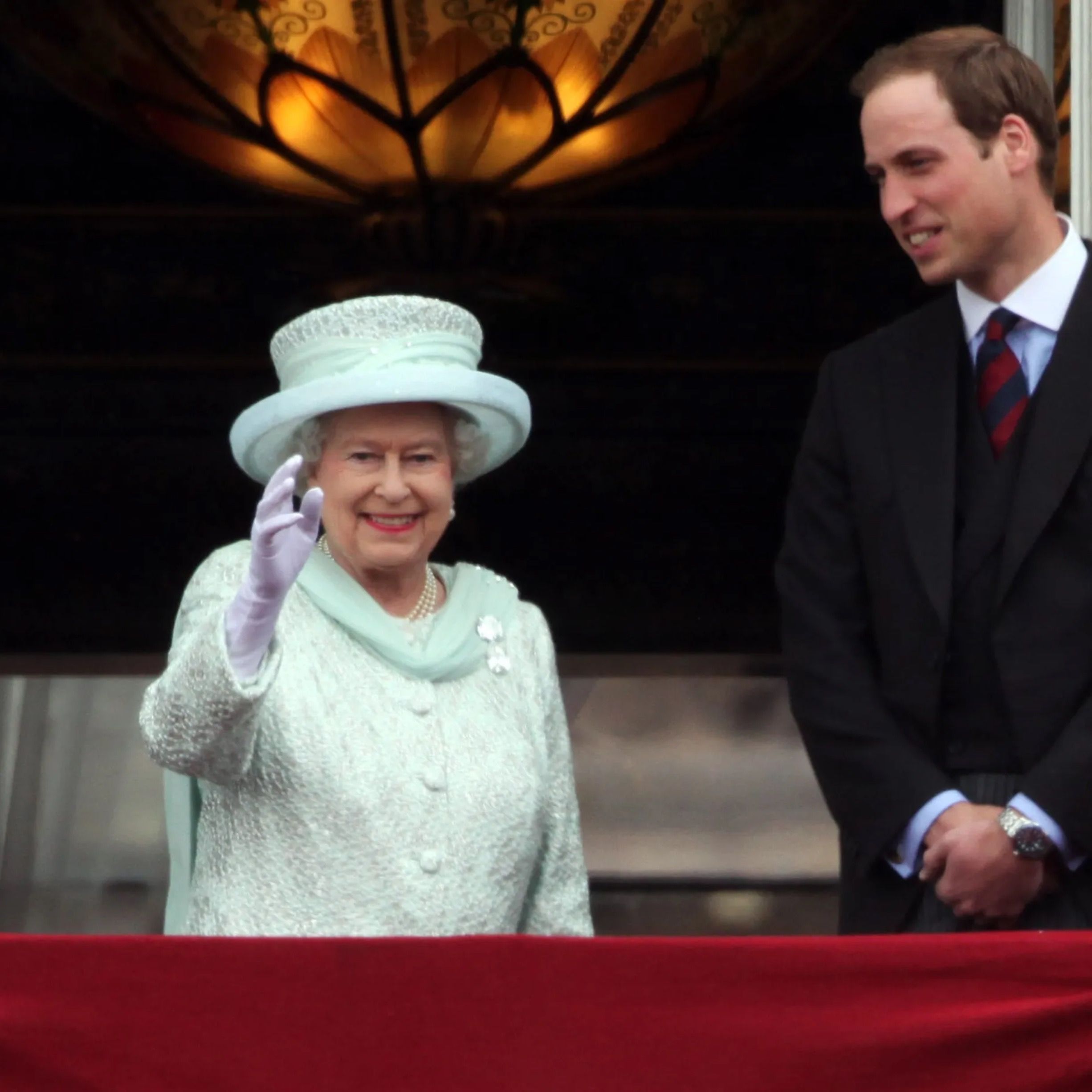 UCL Political Science EventsPOLICY AND PRACTICE - The Platinum Jubilee and Future of the MonarchyIn addition to celebrating her Jubilee, thought is turning to the future of the monarchy, and what changes might be expected after she is gone. Dr Bob Morris (expert on church and state at the Constitution Unit, UCL) will talk about the next Accession and Coronation; Dr Craig Prescott (constitutional lawyer at Bangor University) will explain the need to update the Regency Acts; Dr Carolyn Harris (royal historian at the University of Toronto) will discuss previous jubilees, the role of Consorts, and the upbringing of future monarchs; and Prof Helle Krunke (Professor of Constitutional Law, University of Copenhagen) will...2022-03-171h 14
UCL Political Science EventsPOLICY AND PRACTICE - The Platinum Jubilee and Future of the MonarchyIn addition to celebrating her Jubilee, thought is turning to the future of the monarchy, and what changes might be expected after she is gone. Dr Bob Morris (expert on church and state at the Constitution Unit, UCL) will talk about the next Accession and Coronation; Dr Craig Prescott (constitutional lawyer at Bangor University) will explain the need to update the Regency Acts; Dr Carolyn Harris (royal historian at the University of Toronto) will discuss previous jubilees, the role of Consorts, and the upbringing of future monarchs; and Prof Helle Krunke (Professor of Constitutional Law, University of Copenhagen) will...2022-03-171h 14 Brain StoriesBrain Stories - Episode 6: Sanjay Sisodiya on EpilepsyIn our first episode in 2022, Caswell & Selina talk to Professor Sanjay Sisodiya (UCL Queen Square Institute of Neurology) about his research into epilepsy and the intersection between climate change and neurological disease.For more information and to access the transcript: www.ucl.ac.uk/research/domains/n…in-stories-podcastDate of episode recording: 2021-12-06Duration: 15/12/21Language of episode: EnglishPresenter: Caswell Barry; Steve Fleming; Selina WrayGuests: Sanjay SisodiyaProducer: Suzie McCarthy2022-01-1438 min
Brain StoriesBrain Stories - Episode 6: Sanjay Sisodiya on EpilepsyIn our first episode in 2022, Caswell & Selina talk to Professor Sanjay Sisodiya (UCL Queen Square Institute of Neurology) about his research into epilepsy and the intersection between climate change and neurological disease.For more information and to access the transcript: www.ucl.ac.uk/research/domains/n…in-stories-podcastDate of episode recording: 2021-12-06Duration: 15/12/21Language of episode: EnglishPresenter: Caswell Barry; Steve Fleming; Selina WrayGuests: Sanjay SisodiyaProducer: Suzie McCarthy2022-01-1438 min UCL Institute of Advanced StudiesBarbados’s transition to Republic status in regional perspectiveThe Institute of the Americas Caribbean Seminar Series was delighted to bring you this expert panel discussion in collaboration with the AHRC-funded collaborative research project, The Visible Crown: Elizabeth II in the Caribbean, 1952 to the present. This event was held online on November 10,2021.
Panel:
Professor Cynthia Barrow-Giles is Professor of Political Science and former Deputy Dean of Outreach at the University of the West Indies(Cave Hill).
H.E. David Comissiong has served as Ambassador of Barbados to CARICOM since 2018.
Dr Derek O’Brien is a Reader in Public Law at Oxford Brookes University.
Professor Emerita Carolyn Cooper taught literature an...2021-11-181h 48
UCL Institute of Advanced StudiesBarbados’s transition to Republic status in regional perspectiveThe Institute of the Americas Caribbean Seminar Series was delighted to bring you this expert panel discussion in collaboration with the AHRC-funded collaborative research project, The Visible Crown: Elizabeth II in the Caribbean, 1952 to the present. This event was held online on November 10,2021.
Panel:
Professor Cynthia Barrow-Giles is Professor of Political Science and former Deputy Dean of Outreach at the University of the West Indies(Cave Hill).
H.E. David Comissiong has served as Ambassador of Barbados to CARICOM since 2018.
Dr Derek O’Brien is a Reader in Public Law at Oxford Brookes University.
Professor Emerita Carolyn Cooper taught literature an...2021-11-181h 48 UCL Sarah Parker Remond Centre PodcastIn conversation with Laleh KhaliliLaleh Khalili,, Professor of International Politics and author of Sinews of War & Trade, joins us for a conversation on land reclamation, dredging and the role of maritime infrastructures as conduits of the movement of technologies, capital, people and cargo. Addressing the significant bodies of water around which a politics has taken shape, Laleh discusses the tension of the sea as a romanticised incredible and abstract space, yet also a space of death, exploitation, slavery and colonialism, highlighting the geoeconomical inequalities in the world. Transcript: www.ucl.ac.uk/racism-racialisation/transcript-conversation-laleh-khalili This co...2021-11-0340 min
UCL Sarah Parker Remond Centre PodcastIn conversation with Laleh KhaliliLaleh Khalili,, Professor of International Politics and author of Sinews of War & Trade, joins us for a conversation on land reclamation, dredging and the role of maritime infrastructures as conduits of the movement of technologies, capital, people and cargo. Addressing the significant bodies of water around which a politics has taken shape, Laleh discusses the tension of the sea as a romanticised incredible and abstract space, yet also a space of death, exploitation, slavery and colonialism, highlighting the geoeconomical inequalities in the world. Transcript: www.ucl.ac.uk/racism-racialisation/transcript-conversation-laleh-khalili This co...2021-11-0340 min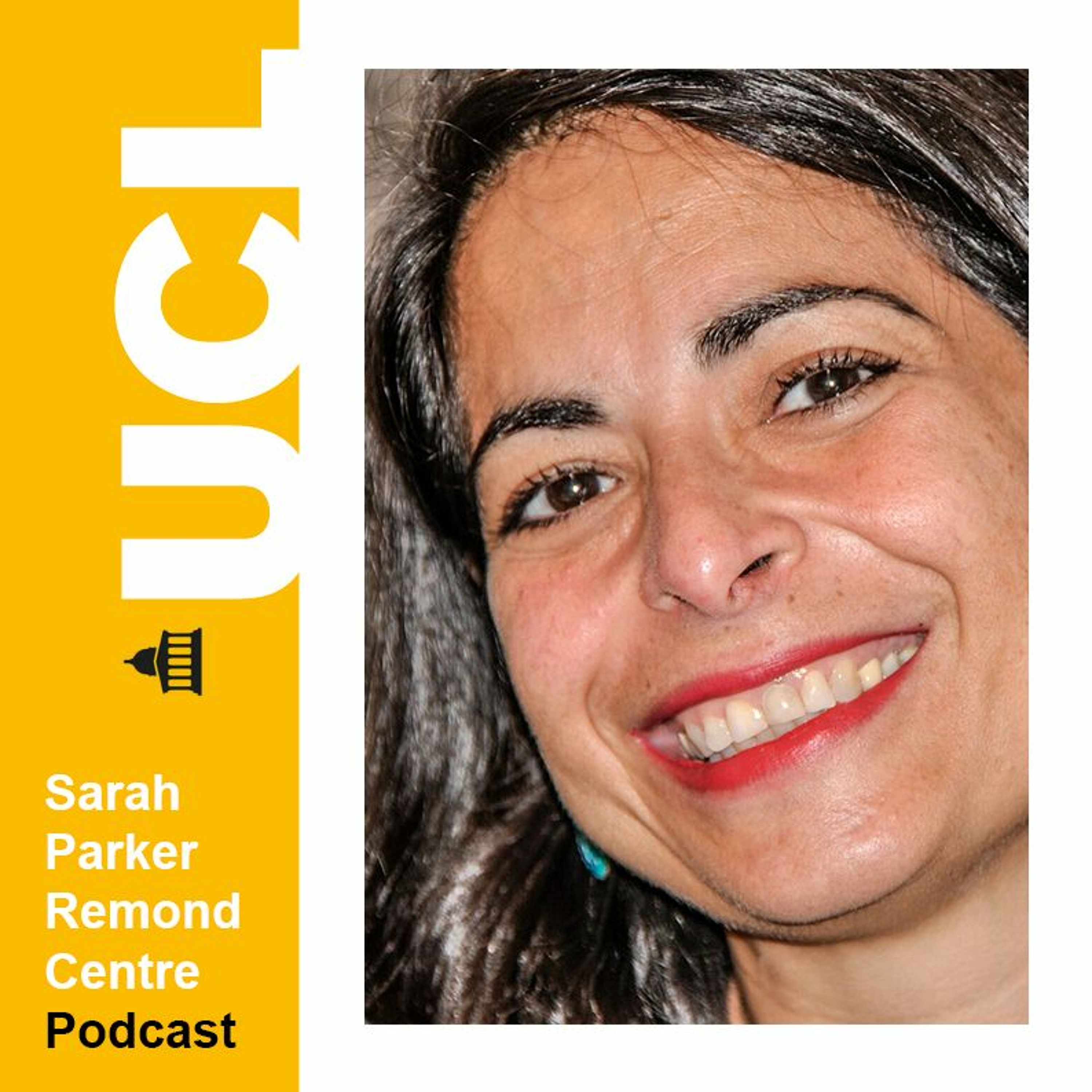 UCL Institute of Advanced StudiesSPRC In conversation with Laleh KhaliliLaleh Khalili, Professor of International Politics and author of 'Sinews of War & Trade', joins us for a conversation on land reclamation, dredging and the role of maritime infrastructures as conduits of the movement of technologies, capital, people and cargo. Addressing the significant bodies of water around which a politics has taken shape, Laleh discusses the tension of the sea as a romanticised incredible and abstract space, yet also a space of death, exploitation, slavery and colonialism, highlighting the geoeconomical inequalities in the world.
Transcript: www.ucl.ac.uk/racism-racialisation/transcript-conversation-laleh-khalili
This conversation was recorded on 30th June 2021
Speakers: Luke de...2021-11-0340 min
UCL Institute of Advanced StudiesSPRC In conversation with Laleh KhaliliLaleh Khalili, Professor of International Politics and author of 'Sinews of War & Trade', joins us for a conversation on land reclamation, dredging and the role of maritime infrastructures as conduits of the movement of technologies, capital, people and cargo. Addressing the significant bodies of water around which a politics has taken shape, Laleh discusses the tension of the sea as a romanticised incredible and abstract space, yet also a space of death, exploitation, slavery and colonialism, highlighting the geoeconomical inequalities in the world.
Transcript: www.ucl.ac.uk/racism-racialisation/transcript-conversation-laleh-khalili
This conversation was recorded on 30th June 2021
Speakers: Luke de...2021-11-0340 min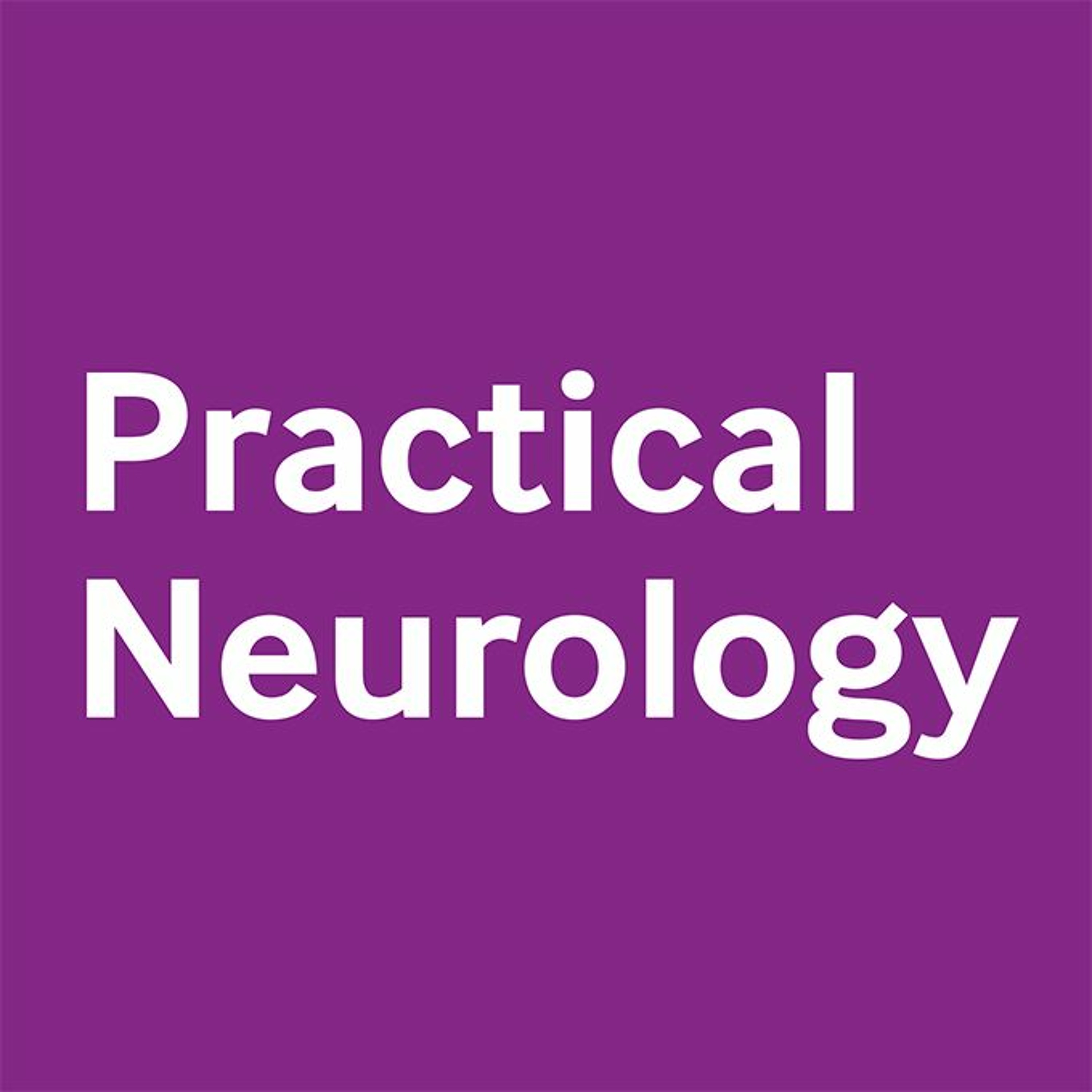 Practical Neurology PodcastSuspecting dementia: canaries, chameleons and zebrasAs the number of people with dementia worldwide approaches 50 million, the need for early and accurate diagnosis is more urgent than ever. However, the biggest challenge is often suspecting dementia in the first place and deciding why this is not ‘just’ Alzheimer’s disease.
Associate Editor of Practical Neurology, Dr Tom Hughes, Department of Neurology, Cardiff, interviews Dr Jeremy Johnson and Dr Jason Warren, both from the Dementia Research Centre, UCL Queen Square Institute of Neurology, London, about their recent paper, in which they outline a practical, symptom-led, bedside approach to suspecting dementia and its likely diagnosis, inspired by clinical experi...2021-08-2329 min
Practical Neurology PodcastSuspecting dementia: canaries, chameleons and zebrasAs the number of people with dementia worldwide approaches 50 million, the need for early and accurate diagnosis is more urgent than ever. However, the biggest challenge is often suspecting dementia in the first place and deciding why this is not ‘just’ Alzheimer’s disease.
Associate Editor of Practical Neurology, Dr Tom Hughes, Department of Neurology, Cardiff, interviews Dr Jeremy Johnson and Dr Jason Warren, both from the Dementia Research Centre, UCL Queen Square Institute of Neurology, London, about their recent paper, in which they outline a practical, symptom-led, bedside approach to suspecting dementia and its likely diagnosis, inspired by clinical experi...2021-08-2329 min Queen Elizabeth Olympic Park PodThe legacy of the London ParalympicsThe Queen Elizabeth Olympic Park is one of the most accessible areas in the whole of the UK. We've worked hard to ensure that the Park really is a park for all. It's been designed to be as accessible and inclusive as possible for a wide range of visitors, employees and future residents.It's also home to the now world renowned 'Global Disability Innovation Hub (GDI Hub)' - a research and practice centre driving disability innovation for a fairer world.In this episode we hear from the founders of the hub, Professor...2021-08-1930 min
Queen Elizabeth Olympic Park PodThe legacy of the London ParalympicsThe Queen Elizabeth Olympic Park is one of the most accessible areas in the whole of the UK. We've worked hard to ensure that the Park really is a park for all. It's been designed to be as accessible and inclusive as possible for a wide range of visitors, employees and future residents.It's also home to the now world renowned 'Global Disability Innovation Hub (GDI Hub)' - a research and practice centre driving disability innovation for a fairer world.In this episode we hear from the founders of the hub, Professor...2021-08-1930 min Practical Neurology PodcastSuspecting dementia: canaries, chameleons and zebrasAs the number of people with dementia worldwide approaches 50 million, the need for early and accurate diagnosis is more urgent than ever. However, the biggest challenge is often suspecting dementia in the first place and deciding why this is not ‘just’ Alzheimer’s disease.
Associate Editor of Practical Neurology, Dr Tom Hughes, Department of Neurology, Cardiff, interviews Dr Jeremy Johnson and Dr Jason Warren, both from the Dementia Research Centre, UCL Queen Square Institute of Neurology, London, about their recent paper, in which they outline a practical, symptom-led, bedside approach to suspecting dementia and its likely diagnosis, inspired by clinical experi...2021-08-0629 min
Practical Neurology PodcastSuspecting dementia: canaries, chameleons and zebrasAs the number of people with dementia worldwide approaches 50 million, the need for early and accurate diagnosis is more urgent than ever. However, the biggest challenge is often suspecting dementia in the first place and deciding why this is not ‘just’ Alzheimer’s disease.
Associate Editor of Practical Neurology, Dr Tom Hughes, Department of Neurology, Cardiff, interviews Dr Jeremy Johnson and Dr Jason Warren, both from the Dementia Research Centre, UCL Queen Square Institute of Neurology, London, about their recent paper, in which they outline a practical, symptom-led, bedside approach to suspecting dementia and its likely diagnosis, inspired by clinical experi...2021-08-0629 min OHBM NeurosalienceNeurosalience #S1E16 with D. Kullmann, and V. Calhoun - A critical look at the field of fMRIThis podcast idea was precipitated by Dimitri Kullman’s 2020 editorial in Brain, causing a stir in the community. It levelled criticism about the clinical validity of fMRI. Some of it was outdated but some was indeed on point. In this podcast we had a great discussion on all things fMRI - what it can and cannot measure, and how it can continue to proceed. We also discuss some of the scientific culture surrounding fMRI. Overall, the discussion was useful in bringing some of the flaws as well as some of the outstanding innovations to light. We ended up agreeing that...2021-07-091h 21
OHBM NeurosalienceNeurosalience #S1E16 with D. Kullmann, and V. Calhoun - A critical look at the field of fMRIThis podcast idea was precipitated by Dimitri Kullman’s 2020 editorial in Brain, causing a stir in the community. It levelled criticism about the clinical validity of fMRI. Some of it was outdated but some was indeed on point. In this podcast we had a great discussion on all things fMRI - what it can and cannot measure, and how it can continue to proceed. We also discuss some of the scientific culture surrounding fMRI. Overall, the discussion was useful in bringing some of the flaws as well as some of the outstanding innovations to light. We ended up agreeing that...2021-07-091h 21 Brain StoriesBrain Stories - Episode 1: Sophie Scott and the science of laughterWelcome to the brand new monthly podcast series from the UCL Neuroscience Domain presented by Caswell Barry (UCL Division of Biosciences), Steve Fleming (UCL Division of Psychology & Language Sciences) and Selina Wray (UCL Queen Square Institute of Neurology). UCL Brain Stories aims to showcase the best of UCL Neuroscience, highlighting the wide range of cutting-edge research going on within the Neuroscience Domain as well as bringing you the people behind the research to share their journey of how they ended up here. Each month we’ll be joined by a leading neuroscientist to offer their perspective on the big qu...2021-06-1539 min
Brain StoriesBrain Stories - Episode 1: Sophie Scott and the science of laughterWelcome to the brand new monthly podcast series from the UCL Neuroscience Domain presented by Caswell Barry (UCL Division of Biosciences), Steve Fleming (UCL Division of Psychology & Language Sciences) and Selina Wray (UCL Queen Square Institute of Neurology). UCL Brain Stories aims to showcase the best of UCL Neuroscience, highlighting the wide range of cutting-edge research going on within the Neuroscience Domain as well as bringing you the people behind the research to share their journey of how they ended up here. Each month we’ll be joined by a leading neuroscientist to offer their perspective on the big qu...2021-06-1539 min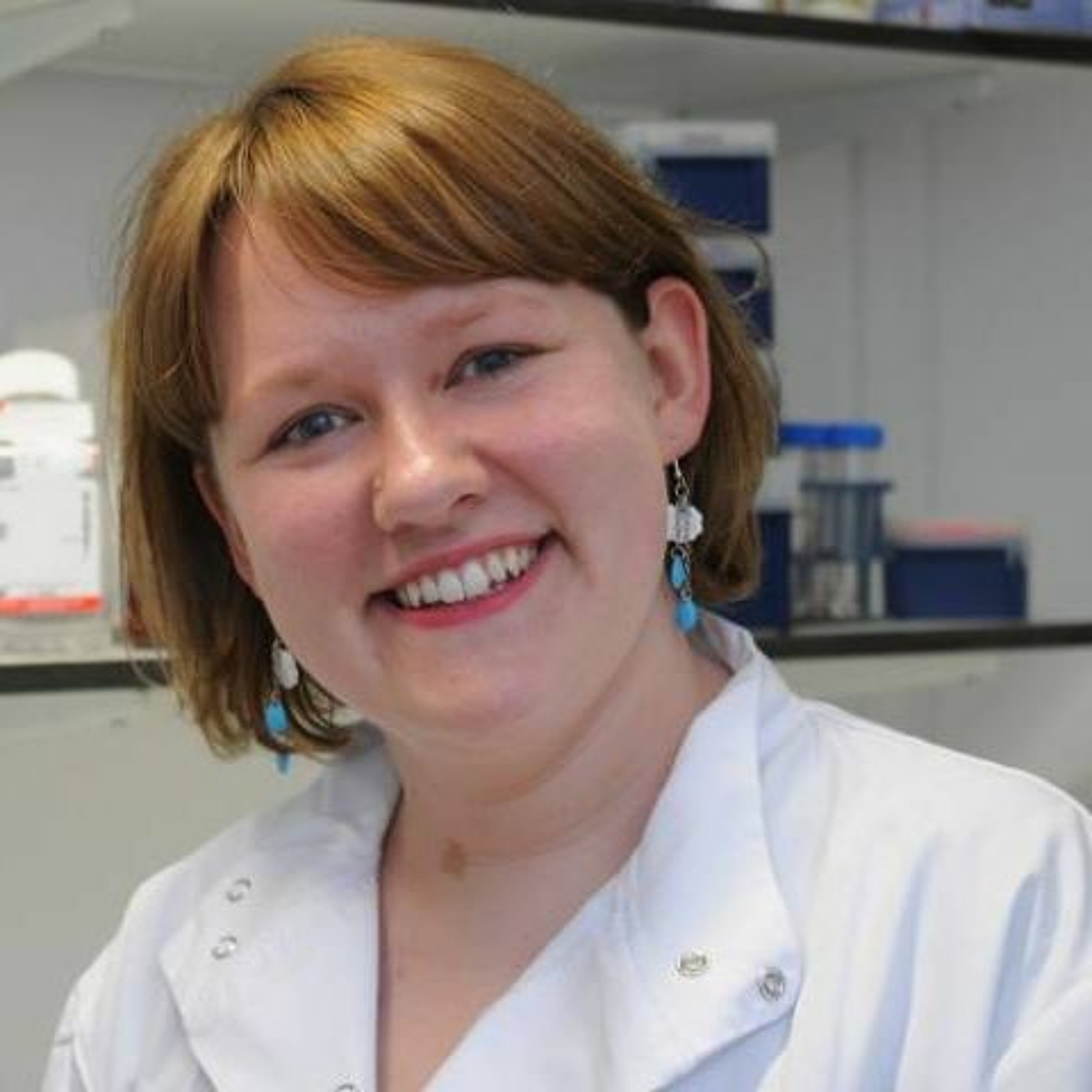 Barnsley MuseumsEpisode 27 - In conversation with: Selina WraySelina Wray is an Alzheimer's Research UK Senior Research Fellow in the Department of Neurodegenerative Disease, UCL Queen Square Institute of Neurology.
Selina received her degree in Biochemistry and Biological Chemistry from the University of Nottingham in 2004, before undertaking PhD training in Dr Diane Hanger’s laboratory at the Institute of Psychiatry, Kings College London. Selina was awarded her PhD in 2008 and subsequently joined the laboratory of Professor John Hardy at UCL Institute of Neurology as an Alzheimer’s Research UK Junior Research Fellow.
This interview was recorded in 2017 as part of the Barnsley Archives Joy of Sound & Vision project fund...2021-06-0934 min
Barnsley MuseumsEpisode 27 - In conversation with: Selina WraySelina Wray is an Alzheimer's Research UK Senior Research Fellow in the Department of Neurodegenerative Disease, UCL Queen Square Institute of Neurology.
Selina received her degree in Biochemistry and Biological Chemistry from the University of Nottingham in 2004, before undertaking PhD training in Dr Diane Hanger’s laboratory at the Institute of Psychiatry, Kings College London. Selina was awarded her PhD in 2008 and subsequently joined the laboratory of Professor John Hardy at UCL Institute of Neurology as an Alzheimer’s Research UK Junior Research Fellow.
This interview was recorded in 2017 as part of the Barnsley Archives Joy of Sound & Vision project fund...2021-06-0934 min JNNP PodcastCOVID - 19 Vaccination and risk of large vessel arterial strokeThe Oxford Astra Zeneca vaccine has been associated with a rare complication of cerebral venous sinus thrombosis. Dr Colin Mahoney, JNNP Podcast Editor, interviews Prof David Werring, Professor of Clinical Neurology, UCL Queen Square Institute of Neurology, UK, about the new evidence which supports an association between vaccination and more common large vessel arterial stroke. They also discuss several cases, including treatment, and emerging biological evidence relating to causation.
Read the paper "Ischaemic stroke as a presenting feature of ChAdOx1 nCoV-19 vaccine-induced immune thrombotic thrombocytopaenia", on the JNNP website: https://jnnp.bmj.com/content/early/2021/05/20/jnnp-2021-326984.
Related editorial...2021-06-0313 min
JNNP PodcastCOVID - 19 Vaccination and risk of large vessel arterial strokeThe Oxford Astra Zeneca vaccine has been associated with a rare complication of cerebral venous sinus thrombosis. Dr Colin Mahoney, JNNP Podcast Editor, interviews Prof David Werring, Professor of Clinical Neurology, UCL Queen Square Institute of Neurology, UK, about the new evidence which supports an association between vaccination and more common large vessel arterial stroke. They also discuss several cases, including treatment, and emerging biological evidence relating to causation.
Read the paper "Ischaemic stroke as a presenting feature of ChAdOx1 nCoV-19 vaccine-induced immune thrombotic thrombocytopaenia", on the JNNP website: https://jnnp.bmj.com/content/early/2021/05/20/jnnp-2021-326984.
Related editorial...2021-06-0313 min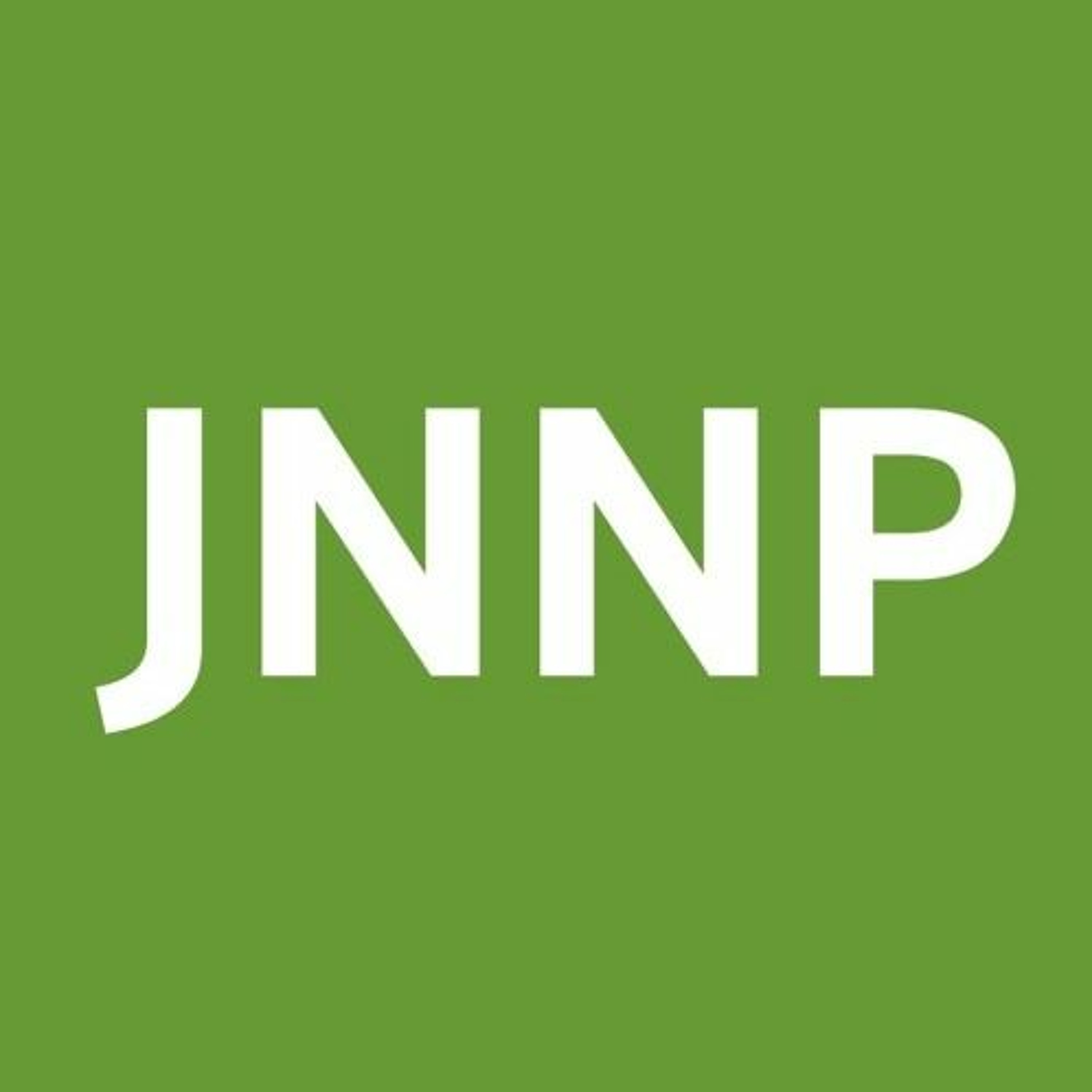 JNNP podcastCOVID - 19 Vaccination and risk of large vessel arterial strokeThe Oxford Astra Zeneca vaccine has been associated with a rare complication of cerebral venous sinus thrombosis. Dr Colin Mahoney, JNNP Podcast Editor, interviews Prof David Werring, Professor of Clinical Neurology, UCL Queen Square Institute of Neurology, UK, about the new evidence which supports an association between vaccination and more common large vessel arterial stroke. They also discuss several cases, including treatment, and emerging biological evidence relating to causation.
Read the paper "Ischaemic stroke as a presenting feature of ChAdOx1 nCoV-19 vaccine-induced immune thrombotic thrombocytopaenia", on the JNNP website: https://jnnp.bmj.com/content/early/2021/05/20/jnnp-2021-326984.
Related editorial paper...2021-06-0313 min
JNNP podcastCOVID - 19 Vaccination and risk of large vessel arterial strokeThe Oxford Astra Zeneca vaccine has been associated with a rare complication of cerebral venous sinus thrombosis. Dr Colin Mahoney, JNNP Podcast Editor, interviews Prof David Werring, Professor of Clinical Neurology, UCL Queen Square Institute of Neurology, UK, about the new evidence which supports an association between vaccination and more common large vessel arterial stroke. They also discuss several cases, including treatment, and emerging biological evidence relating to causation.
Read the paper "Ischaemic stroke as a presenting feature of ChAdOx1 nCoV-19 vaccine-induced immune thrombotic thrombocytopaenia", on the JNNP website: https://jnnp.bmj.com/content/early/2021/05/20/jnnp-2021-326984.
Related editorial paper...2021-06-0313 min Coronavirus: The Whole StoryWhat is Long COVID?Over a year on from the start of the pandemic, many people are still suffering complications after contracting coronavirus in the first wave. In our 50th episode, we explore the long-term physical and psychological effects of the virus by talking to two researchers about their groundbreaking work with “Long COVID”. Find out more about the symptoms of Long COVID, what to do if you think you have it, and what not to say to a Long COVID sufferer!Guests: Dr Alexandra Burton, Senior Research Fellow in Behavioural Science / Behaviour Change at the Institute of Epidemiology &...2021-05-2428 min
Coronavirus: The Whole StoryWhat is Long COVID?Over a year on from the start of the pandemic, many people are still suffering complications after contracting coronavirus in the first wave. In our 50th episode, we explore the long-term physical and psychological effects of the virus by talking to two researchers about their groundbreaking work with “Long COVID”. Find out more about the symptoms of Long COVID, what to do if you think you have it, and what not to say to a Long COVID sufferer!Guests: Dr Alexandra Burton, Senior Research Fellow in Behavioural Science / Behaviour Change at the Institute of Epidemiology &...2021-05-2428 min Coronavirus: The Whole StoryCoronavirus: The Whole Story - What is Long COVID?Over a year on from the start of the pandemic, many people are still suffering complications after contracting coronavirus in the first wave. In our 50th episode, we explore the long-term physical and psychological effects of the virus by talking to two researchers about their groundbreaking work with “Long COVID”. Find out more about the symptoms of Long COVID, what to do if you think you have it, and what not to say to a Long COVID sufferer!
Join Vivienne Parry speak with UCL experts:
Dr Alexandra Burton, Senior Research Fellow in Behavioural Science / Behaviour Change at the Institute of Epid...2021-05-2428 min
Coronavirus: The Whole StoryCoronavirus: The Whole Story - What is Long COVID?Over a year on from the start of the pandemic, many people are still suffering complications after contracting coronavirus in the first wave. In our 50th episode, we explore the long-term physical and psychological effects of the virus by talking to two researchers about their groundbreaking work with “Long COVID”. Find out more about the symptoms of Long COVID, what to do if you think you have it, and what not to say to a Long COVID sufferer!
Join Vivienne Parry speak with UCL experts:
Dr Alexandra Burton, Senior Research Fellow in Behavioural Science / Behaviour Change at the Institute of Epid...2021-05-2428 min Queen's University Belfast - Shaping a Better World PodcastBeyond Coronavirus: How does the World Recover?Audio podcast version of a keynote address delivered on Tuesday, 13 May 2021 by Professor Henrietta Moore,
Founder and Director of the Institute for Global Prosperity, UCL.
Followed by commentary from Professor Diarmuid O'Donovan,
Clinical Professor, School of Medicine, Dentistry and Biomedical Sciences, Queen’s University Belfast.
Welcome address: Professor Ian Greer, President and Vice-Chancellor, Queen’s University
Q&A Chaired by: Ann Watt, Director, Pivotal Public Policy Forum
Concluding remarks: Professor Stuart Elborn, Pro-Vice-Chancellor, Queen’s University.2021-05-141h 27
Queen's University Belfast - Shaping a Better World PodcastBeyond Coronavirus: How does the World Recover?Audio podcast version of a keynote address delivered on Tuesday, 13 May 2021 by Professor Henrietta Moore,
Founder and Director of the Institute for Global Prosperity, UCL.
Followed by commentary from Professor Diarmuid O'Donovan,
Clinical Professor, School of Medicine, Dentistry and Biomedical Sciences, Queen’s University Belfast.
Welcome address: Professor Ian Greer, President and Vice-Chancellor, Queen’s University
Q&A Chaired by: Ann Watt, Director, Pivotal Public Policy Forum
Concluding remarks: Professor Stuart Elborn, Pro-Vice-Chancellor, Queen’s University.2021-05-141h 27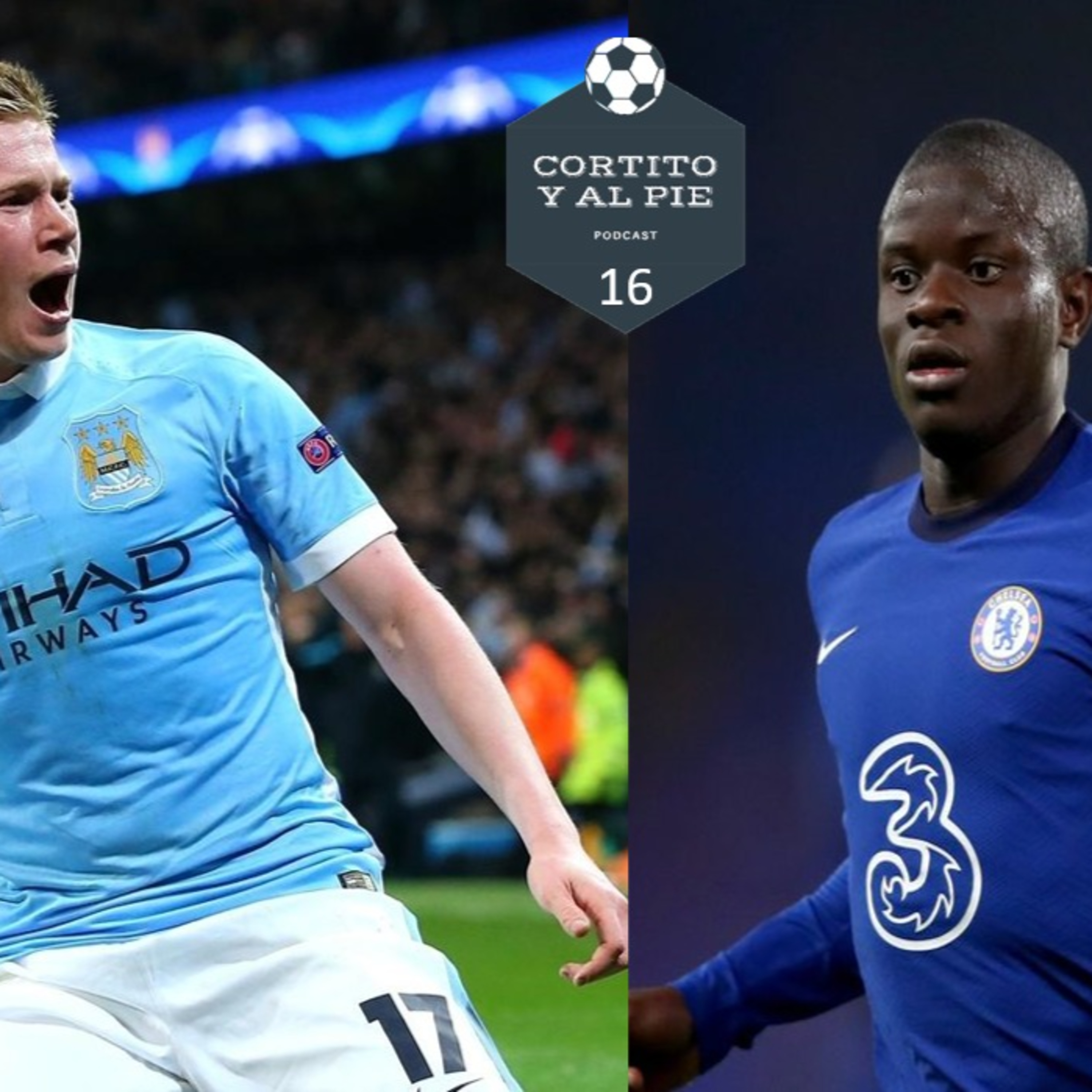 Cortito y al PieEpisodio 16 - UCL British Final¡God save the Queen! Se metieron los dos representantes ingleses a la final de la UEFA Champions League, Se acabó la mentira del PSG, desnuda ante el Manchester City del iluminado de Santpedor, y el Chelsea de Tuchel superó ampliamente al Real Madrid de ZZ y su 'flog'. Traemos a nuestros estudios a un embajador Blue para que nos cuente las fortalezas de su equipo, y como ve esa emocionante final del 29 de mayo. Mientras la policía dispara contra el pueblo, el fútbol es una de las pocas alegrías que nos quedan. ¡Pasen y escuchen!2021-05-0732 min
Cortito y al PieEpisodio 16 - UCL British Final¡God save the Queen! Se metieron los dos representantes ingleses a la final de la UEFA Champions League, Se acabó la mentira del PSG, desnuda ante el Manchester City del iluminado de Santpedor, y el Chelsea de Tuchel superó ampliamente al Real Madrid de ZZ y su 'flog'. Traemos a nuestros estudios a un embajador Blue para que nos cuente las fortalezas de su equipo, y como ve esa emocionante final del 29 de mayo. Mientras la policía dispara contra el pueblo, el fútbol es una de las pocas alegrías que nos quedan. ¡Pasen y escuchen!2021-05-0732 min Bloomberg UK PoliticsMonarchy Special: Queen's GambitWhat is the Queen for in 21st century Britain? Why does a developed democracy insist on having an unelected head of state, who is also head of state of 15 other countries within the Commonwealth?Robert Hazell, professor of government and the Constitution at UCL and co-author of The Role of Monarchy in Modern Democracy, tells Bloomberg Westminster's Roger Hearing and Caroline Hepker the monarch speaks to and for the nation at crucial moments and represents continuity.Graham Smith of republic.org and Phillip Blond, director of the think tank ResPublica provide the cases for and...2021-04-2322 min
Bloomberg UK PoliticsMonarchy Special: Queen's GambitWhat is the Queen for in 21st century Britain? Why does a developed democracy insist on having an unelected head of state, who is also head of state of 15 other countries within the Commonwealth?Robert Hazell, professor of government and the Constitution at UCL and co-author of The Role of Monarchy in Modern Democracy, tells Bloomberg Westminster's Roger Hearing and Caroline Hepker the monarch speaks to and for the nation at crucial moments and represents continuity.Graham Smith of republic.org and Phillip Blond, director of the think tank ResPublica provide the cases for and...2021-04-2322 min A Neuro Physio PodcastFran Brander - Upper Limb @ Queen SquareFran Brander is a Consultant Physiotherapist at the renowned National Hospital for Neurology and Neurosurgery. She is the lead physiotherapist in the Upper Limb Program and chats about research into clinical practice, being ambitious in our treatment of the upper limb post brain injury and philosophy of upper limb treatment.3.23 - Introduction4.33 - Career pathway6.42 - Consult Physiotherapists (UK)10.13 - National Hospital for Neurology & Neurosurgery - Queen Square London12.00 - Rehabilitation Units in the UK - Levels14.44 - UCL Upper Limb Service18.18 - Arguing for funding21.42 - Patient selection24.37...2021-04-2153 min
A Neuro Physio PodcastFran Brander - Upper Limb @ Queen SquareFran Brander is a Consultant Physiotherapist at the renowned National Hospital for Neurology and Neurosurgery. She is the lead physiotherapist in the Upper Limb Program and chats about research into clinical practice, being ambitious in our treatment of the upper limb post brain injury and philosophy of upper limb treatment.3.23 - Introduction4.33 - Career pathway6.42 - Consult Physiotherapists (UK)10.13 - National Hospital for Neurology & Neurosurgery - Queen Square London12.00 - Rehabilitation Units in the UK - Levels14.44 - UCL Upper Limb Service18.18 - Arguing for funding21.42 - Patient selection24.37...2021-04-2153 min The AcadeministThe Class Ceiling with Prof. Selina WrayHalf-peppers wrapped in cling-film, leaving small towns and the power of stubbornness. This month we’re talking about the ‘class ceiling’ with Professor Selina Wray, a Professor of Molecular Neuroscience at UCL Queen Square Institute of Neurology. She shares with us her experiences of food poverty, growing up working class and the barriers she faced navigating a career in science. Follow Selina (Twitter: @SelinaWray) and check out her lab’s amazing work and what they get up to (Twitter: @WrayLabUCL) .Other things mentioned in the episode, which you should check out:In...2021-02-261h 07
The AcadeministThe Class Ceiling with Prof. Selina WrayHalf-peppers wrapped in cling-film, leaving small towns and the power of stubbornness. This month we’re talking about the ‘class ceiling’ with Professor Selina Wray, a Professor of Molecular Neuroscience at UCL Queen Square Institute of Neurology. She shares with us her experiences of food poverty, growing up working class and the barriers she faced navigating a career in science. Follow Selina (Twitter: @SelinaWray) and check out her lab’s amazing work and what they get up to (Twitter: @WrayLabUCL) .Other things mentioned in the episode, which you should check out:In...2021-02-261h 07 Queen Elizabeth Olympic Park PodEast Bank - a world-leading legacyEast Bank is a new £1.1 billion powerhouse of culture, education, innovation and growth being built on Queen Elizabeth Olympic Park. It brings together UCL, UAL’s London College of Fashion, Sadler’s Wells, BBC and the V&A in the largest culture and education investment since the Great Exhibition of 1851. Driven by significant backing and funding from the Mayor of London and support from the Government, East Bank will create jobs and opportunities for local people. It will bring more than 10,000 students and 1.5 million extra visitors a year to the Park. East Ban...2021-02-2222 min
Queen Elizabeth Olympic Park PodEast Bank - a world-leading legacyEast Bank is a new £1.1 billion powerhouse of culture, education, innovation and growth being built on Queen Elizabeth Olympic Park. It brings together UCL, UAL’s London College of Fashion, Sadler’s Wells, BBC and the V&A in the largest culture and education investment since the Great Exhibition of 1851. Driven by significant backing and funding from the Mayor of London and support from the Government, East Bank will create jobs and opportunities for local people. It will bring more than 10,000 students and 1.5 million extra visitors a year to the Park. East Ban...2021-02-2222 min Queen's University Belfast - Shaping a Better World PodcastBeyond Coronavirus: Vaccination and the Covid-19 PandemicAudio version of a live online event, Thursday 14 January 2021 at 12.00pm.
The event featured keynote speaker Professor Sheena McCormack, Clinical Project Lead for the COVAC trials, MRC Clinical Trials Unit at UCL and Dr Mark Flear, Reader in Law, Queen’s University Belfast as discussant.
Ann Watt, Pivotal PPF facilitated the discussion.
With and introduction from Vice-Chancellor Professor Ian Greer and a conclusion from Professor Stuart Elborn.2021-01-191h 26
Queen's University Belfast - Shaping a Better World PodcastBeyond Coronavirus: Vaccination and the Covid-19 PandemicAudio version of a live online event, Thursday 14 January 2021 at 12.00pm.
The event featured keynote speaker Professor Sheena McCormack, Clinical Project Lead for the COVAC trials, MRC Clinical Trials Unit at UCL and Dr Mark Flear, Reader in Law, Queen’s University Belfast as discussant.
Ann Watt, Pivotal PPF facilitated the discussion.
With and introduction from Vice-Chancellor Professor Ian Greer and a conclusion from Professor Stuart Elborn.2021-01-191h 26 Radio Calcio Femminile#Approfondimenti - Intervista a Matteo ZanovelloProtocollo sanitario FIGC e tamponi, la parola all'esperto Matteo Zanovello, brillante medico ricercatore presso l’UCL Queen Square Institute of Neurology and Neurosurgery di Londra, fa un po’ di chiarezza su come funziona.2020-11-1812 min
Radio Calcio Femminile#Approfondimenti - Intervista a Matteo ZanovelloProtocollo sanitario FIGC e tamponi, la parola all'esperto Matteo Zanovello, brillante medico ricercatore presso l’UCL Queen Square Institute of Neurology and Neurosurgery di Londra, fa un po’ di chiarezza su come funziona.2020-11-1812 min #ExpertAnswers - an InsideScientific Podcast#ExpertAnswers: Robert Wykes & Anthony Umpierre on Studying Epilepsy Using Microscopy, Electrophysiology, and OptogeneticsThis episode of #ExpertAnswers features Dr. Robert Wykes and Dr. Anthony Umpierre, who recently joined us for a webinar to discuss how microscopy, electrophysiology, and optogenetics are used to study microglial calcium signaling and epileptic networks in awake head-fixed mice. Rob Wykes is a Senior Lecturer in the Nanomedicine Lab at the University of Manchester and senior research fellow at the UCL Queen Square Institute of Neurology. He is well regarded for his development of novel technology and therapies to investigate and treat seizures, and was among the first to adapt in vivo optogenetic and calcium imaging approaches to...2020-10-1512 min
#ExpertAnswers - an InsideScientific Podcast#ExpertAnswers: Robert Wykes & Anthony Umpierre on Studying Epilepsy Using Microscopy, Electrophysiology, and OptogeneticsThis episode of #ExpertAnswers features Dr. Robert Wykes and Dr. Anthony Umpierre, who recently joined us for a webinar to discuss how microscopy, electrophysiology, and optogenetics are used to study microglial calcium signaling and epileptic networks in awake head-fixed mice. Rob Wykes is a Senior Lecturer in the Nanomedicine Lab at the University of Manchester and senior research fellow at the UCL Queen Square Institute of Neurology. He is well regarded for his development of novel technology and therapies to investigate and treat seizures, and was among the first to adapt in vivo optogenetic and calcium imaging approaches to...2020-10-1512 min Wanna Be#56 Dr Victoria Showunmi: Stop Working Harder (recovered)This week I’m joined by my mentor Dr Victoria Showunmi. Dr Victoria is a lecturer in Education at UCL’s Institute of Education and Maynooth University. Dr Victoria’s research interest include women, women’s development, race and identity. She has contributed to a number of books in 2017 including a chapter Feminist Pedagogy, Practice, and Activism: Improving Lives for Girls and Women. Her research has appeared in several peer-reviewed journals I recommend reading ‘Ethnic, gender and class intersections in British women’s leadership experiences’.In today’s episode, we talk about the impact transracial adoption has had on Dr Vi...2020-07-2231 min
Wanna Be#56 Dr Victoria Showunmi: Stop Working Harder (recovered)This week I’m joined by my mentor Dr Victoria Showunmi. Dr Victoria is a lecturer in Education at UCL’s Institute of Education and Maynooth University. Dr Victoria’s research interest include women, women’s development, race and identity. She has contributed to a number of books in 2017 including a chapter Feminist Pedagogy, Practice, and Activism: Improving Lives for Girls and Women. Her research has appeared in several peer-reviewed journals I recommend reading ‘Ethnic, gender and class intersections in British women’s leadership experiences’.In today’s episode, we talk about the impact transracial adoption has had on Dr Vi...2020-07-2231 min Wanna Be#55 Dr Victoria Showunmi: Black Women In All White Spaces (Recovered)This week I’m joined by my mentor Dr Victoria Showunmi. Dr Victoria is a lecturer in Education at UCL’s Institute of Education and Maynooth University. Dr Victoria’s research interest include women, women’s development, race and identity. She has contributed to a number of books in 2017 including a chapter Feminist Pedagogy, Practice, and Activism: Improving Lives for Girls and Women. Her research has appeared in peer-reviewed journals which include 'The colour of class: the educational strategies of the Black middle classes; Multiculturalism and education; Rac(e)ing to class: confronting poverty and race in schools and classroo...2020-07-1535 min
Wanna Be#55 Dr Victoria Showunmi: Black Women In All White Spaces (Recovered)This week I’m joined by my mentor Dr Victoria Showunmi. Dr Victoria is a lecturer in Education at UCL’s Institute of Education and Maynooth University. Dr Victoria’s research interest include women, women’s development, race and identity. She has contributed to a number of books in 2017 including a chapter Feminist Pedagogy, Practice, and Activism: Improving Lives for Girls and Women. Her research has appeared in peer-reviewed journals which include 'The colour of class: the educational strategies of the Black middle classes; Multiculturalism and education; Rac(e)ing to class: confronting poverty and race in schools and classroo...2020-07-1535 min On TrackRaissa de Haas (Double Dutch, Forbes 30 under 30) - About young entrepreneurship, letting go and having drinks with the Queen.Raissa de Haas is one of the Dutch twin sisters behind Double Dutch, the immensely popular premium mixer brand. Both sisters studied economics at the University of Antwerp where they regularly threw parties for friends. Frustrated by the low excitement level and quality of the usual mixers that go along with spirits like Gin, they started making their own mixers. A hobby became a passion and a few years later after graduating at UCL in London, they launched Double Dutch, a company that makes premium mixers and tonics. In 2015 they won Virgin’s Foodpreneur award. And in 2019 the twins wer...2020-07-1343 min
On TrackRaissa de Haas (Double Dutch, Forbes 30 under 30) - About young entrepreneurship, letting go and having drinks with the Queen.Raissa de Haas is one of the Dutch twin sisters behind Double Dutch, the immensely popular premium mixer brand. Both sisters studied economics at the University of Antwerp where they regularly threw parties for friends. Frustrated by the low excitement level and quality of the usual mixers that go along with spirits like Gin, they started making their own mixers. A hobby became a passion and a few years later after graduating at UCL in London, they launched Double Dutch, a company that makes premium mixers and tonics. In 2015 they won Virgin’s Foodpreneur award. And in 2019 the twins wer...2020-07-1343 min Aunty M Brain Tumours Talk ShowWho Are The National Brain Appeal?Tariza Dauntseau tells us about The National Brain Appeal. A charity dedicated to raising vital funds for The National Hospital for Neurology and Neurosurgery, and the UCL Queen Square Institute of Neurology. Since the charity began in 1984 they have raised over £45m for state-of-the-art equipment, major building programmes and life-saving research.
Don't forget to check out the Aunty M Brain Tumours Website.
Follow Aunty M Brain Tumours on:
Twitter
Facebook
Instagram
YouTube
Pinterest
(This Recording was held at Croydon Radio as a part...2019-07-1122 min
Aunty M Brain Tumours Talk ShowWho Are The National Brain Appeal?Tariza Dauntseau tells us about The National Brain Appeal. A charity dedicated to raising vital funds for The National Hospital for Neurology and Neurosurgery, and the UCL Queen Square Institute of Neurology. Since the charity began in 1984 they have raised over £45m for state-of-the-art equipment, major building programmes and life-saving research.
Don't forget to check out the Aunty M Brain Tumours Website.
Follow Aunty M Brain Tumours on:
Twitter
Facebook
Instagram
YouTube
Pinterest
(This Recording was held at Croydon Radio as a part...2019-07-1122 min Ri Science PodcastFuture Pharma - With Expert PanelFor centuries we’ve been using chemicals to improve health, but technology is set to transform the way medicine works. This month, five scientists on the cutting-edge of pharmaceutical research talk about the latest in gene therapy, cancer treatment and more.
Ijeoma Uchegbu is a professor of Pharmaceutical Nanoscience at UCL. Her research focuses on designing drugs that can cross the blood-brain barrier. She won the Royal Pharmaceutical Society's Pharmaceutical Scientist of the Year Award in 2012. https://www.ucl.ac.uk/pharmacy/people/professor-ijeoma-uchegbu
Catherine Tuleu is a professor of Paediatric Pharmaceutics at UCL. The main focus of her research concer...2018-08-271h 28
Ri Science PodcastFuture Pharma - With Expert PanelFor centuries we’ve been using chemicals to improve health, but technology is set to transform the way medicine works. This month, five scientists on the cutting-edge of pharmaceutical research talk about the latest in gene therapy, cancer treatment and more.
Ijeoma Uchegbu is a professor of Pharmaceutical Nanoscience at UCL. Her research focuses on designing drugs that can cross the blood-brain barrier. She won the Royal Pharmaceutical Society's Pharmaceutical Scientist of the Year Award in 2012. https://www.ucl.ac.uk/pharmacy/people/professor-ijeoma-uchegbu
Catherine Tuleu is a professor of Paediatric Pharmaceutics at UCL. The main focus of her research concer...2018-08-271h 28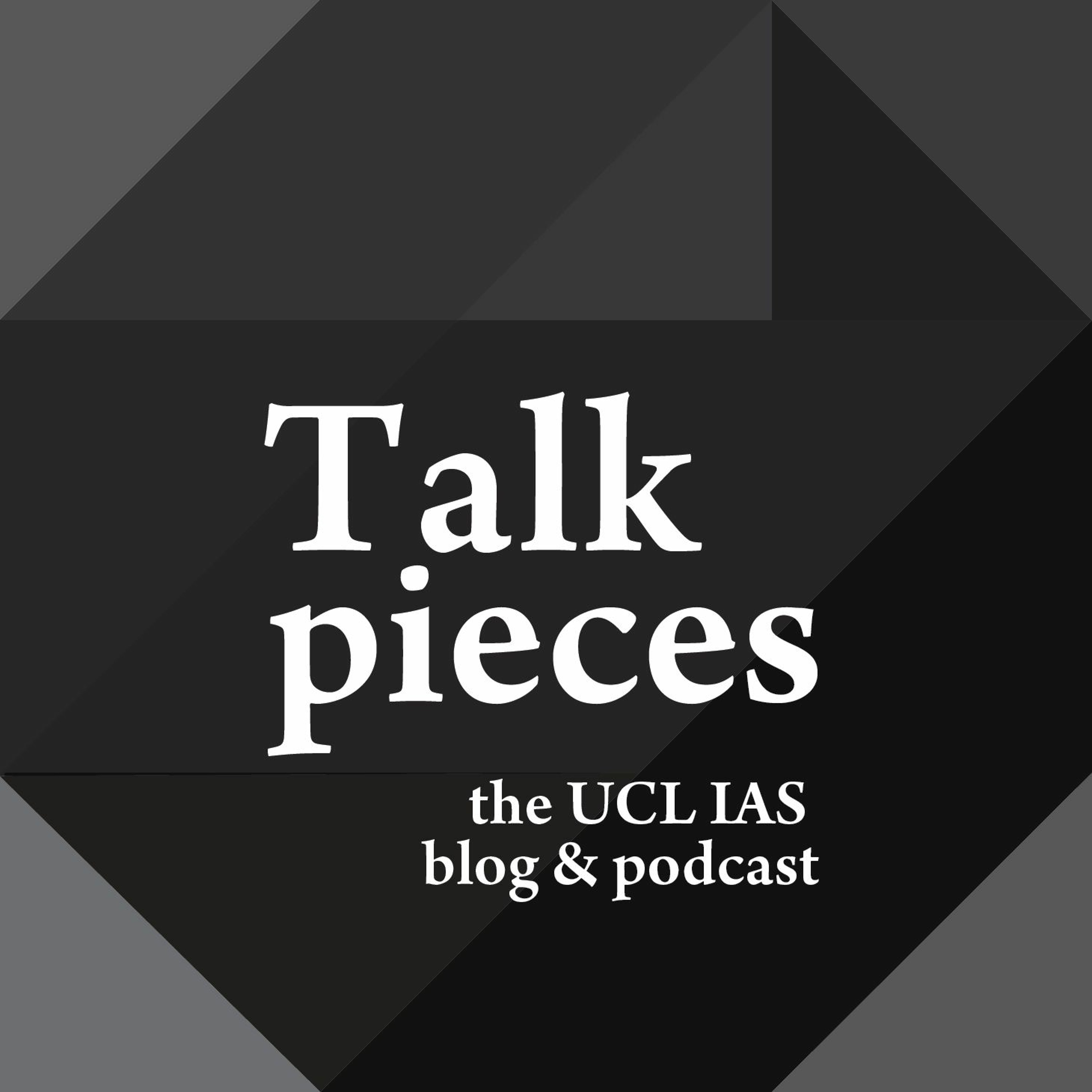 UCL Institute of Advanced StudiesIAS Lies: Defamation - A Roundtable on Lies and the Lawby Dr Alex Mills (UCL Laws)
Prof Rachael Mulheron (Queen Mary Law)
Robert Sharp (Head of Campaigns, English PEN)
Dr Judith Townend (Sussex Law)
As part of this year’s research theme on ‘Lies’, the UCL Institute of Advanced Studies hosted a panel discussion on the present and future of defamation law. How can the law best protect rights of speech and of privacy in a digital age? Has the Defamation Act of 2013 allowed for the publication of truths, opinions honestly held, or speech in the public interest? How has a new standard of harm respected the rights of the claima...2018-03-221h 49
UCL Institute of Advanced StudiesIAS Lies: Defamation - A Roundtable on Lies and the Lawby Dr Alex Mills (UCL Laws)
Prof Rachael Mulheron (Queen Mary Law)
Robert Sharp (Head of Campaigns, English PEN)
Dr Judith Townend (Sussex Law)
As part of this year’s research theme on ‘Lies’, the UCL Institute of Advanced Studies hosted a panel discussion on the present and future of defamation law. How can the law best protect rights of speech and of privacy in a digital age? Has the Defamation Act of 2013 allowed for the publication of truths, opinions honestly held, or speech in the public interest? How has a new standard of harm respected the rights of the claima...2018-03-221h 49 Today's Neuroscience, Tomorrow's History - Professor Geoffrey BurnstockThe Chair of Anatomy at UCL, 1975 the secret of a successful departmentToday's Neuroscience, Tomorrow's History - Geoffrey Burnstock2012-08-2700 min
Today's Neuroscience, Tomorrow's History - Professor Geoffrey BurnstockThe Chair of Anatomy at UCL, 1975 the secret of a successful departmentToday's Neuroscience, Tomorrow's History - Geoffrey Burnstock2012-08-2700 min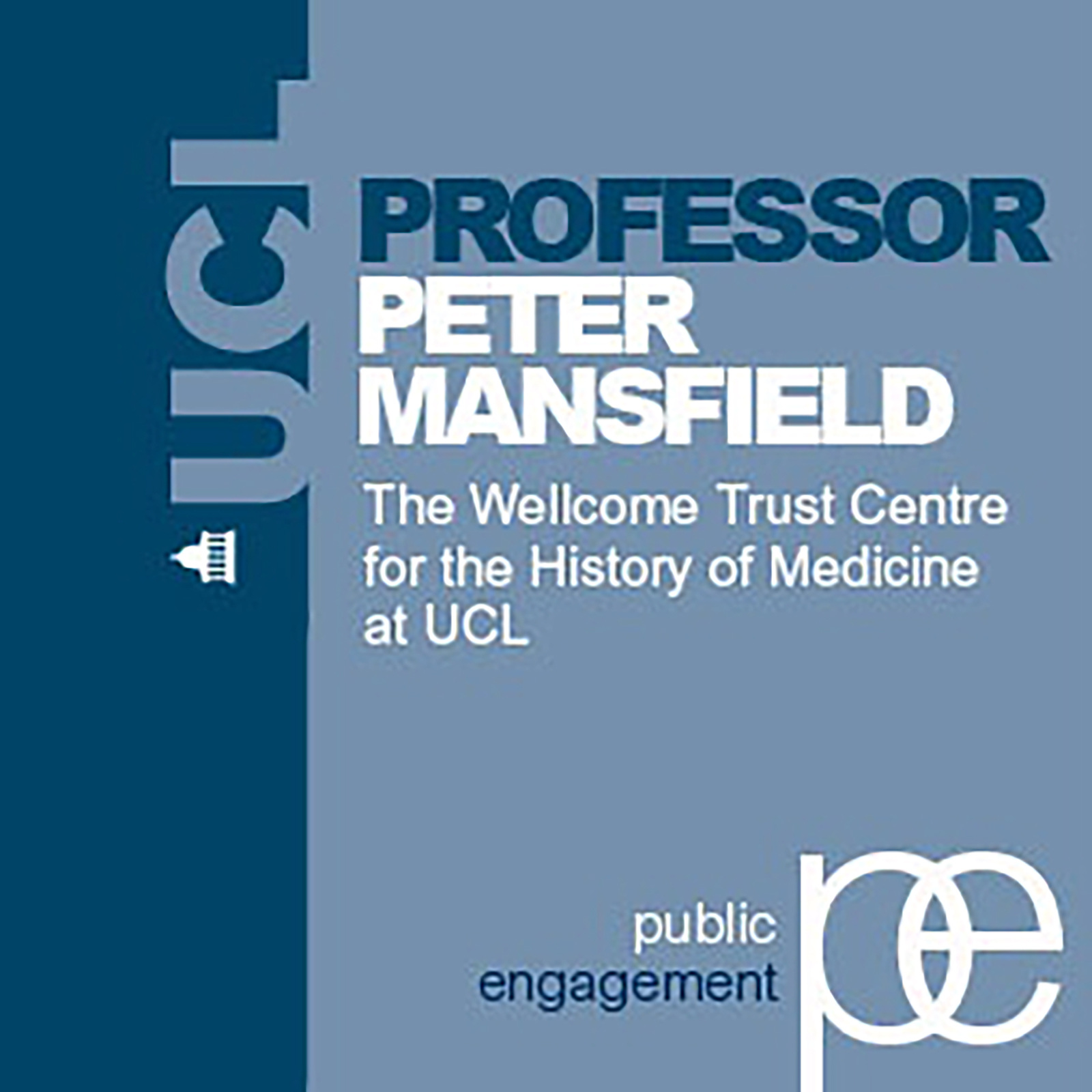 Today's Neuroscience, Tomorrow's History - Professor Peter Mansfield - Audio1. School days in south LondonSir Peter Mansfield was born on 9 October 1933 and grew up in London. He left school at fifteen to become a printer’s assistant before obtaining a government post at the Rocket Propulsion Department in Westcott, Buckinghamshire. After national service, he studied at night school for the qualifications that gave him entrance, in 1956, to Queen Mary College, University of London, where he studied physics.
Sir Peter’s early work was in Nuclear Magnetic Resonance (NMR), then being used to study the chemical structure of substances. He joined the Department of Physics, University of Nottingham, in 1964, and by the early 1970s was work...2009-06-2400 min
Today's Neuroscience, Tomorrow's History - Professor Peter Mansfield - Audio1. School days in south LondonSir Peter Mansfield was born on 9 October 1933 and grew up in London. He left school at fifteen to become a printer’s assistant before obtaining a government post at the Rocket Propulsion Department in Westcott, Buckinghamshire. After national service, he studied at night school for the qualifications that gave him entrance, in 1956, to Queen Mary College, University of London, where he studied physics.
Sir Peter’s early work was in Nuclear Magnetic Resonance (NMR), then being used to study the chemical structure of substances. He joined the Department of Physics, University of Nottingham, in 1964, and by the early 1970s was work...2009-06-2400 min Today's Neuroscience, Tomorrow's History - Professor Richard Frackowiak - Audio09. MRI (Magnetic Resonance Imaging) - a new Imaging Centre, Queen Square, 1995Professor Richard Frackowiak was born in London and studied medicine at the University of Cambridge where he first became interested in the neurosciences. He joined the Medical Research Council’s Cyclotron Unit at Hammersmith Hospital, London, in 1979, under Professor Terry Jones, who had just installed one of Britain’s first Positron Emission Tomography (PET) scanners.
Professor Frackowiak has always worked in brain imaging and his particular focus has been on determing how the normal brain functions, and how individuals’ activities and environments collaborate to shape their brains. In 1995, as Professor of Cognitive Neurology at UCL’s Institute of Neurology, he establis...2009-02-2400 min
Today's Neuroscience, Tomorrow's History - Professor Richard Frackowiak - Audio09. MRI (Magnetic Resonance Imaging) - a new Imaging Centre, Queen Square, 1995Professor Richard Frackowiak was born in London and studied medicine at the University of Cambridge where he first became interested in the neurosciences. He joined the Medical Research Council’s Cyclotron Unit at Hammersmith Hospital, London, in 1979, under Professor Terry Jones, who had just installed one of Britain’s first Positron Emission Tomography (PET) scanners.
Professor Frackowiak has always worked in brain imaging and his particular focus has been on determing how the normal brain functions, and how individuals’ activities and environments collaborate to shape their brains. In 1995, as Professor of Cognitive Neurology at UCL’s Institute of Neurology, he establis...2009-02-2400 min Today's Neuroscience, Tomorrow's History - Professor Peter Mansfield - Audio14. Safety - protecting patientsSir Peter Mansfield was born on 9 October 1933 and grew up in London. He left school at fifteen to become a printer’s assistant before obtaining a government post at the Rocket Propulsion Department in Westcott, Buckinghamshire. After national service, he studied at night school for the qualifications that gave him entrance, in 1956, to Queen Mary College, University of London, where he studied physics.
Sir Peter’s early work was in Nuclear Magnetic Resonance (NMR), then being used to study the chemical structure of substances. He joined the Department of Physics, University of Nottingham, in 1964, and by the early 1970s was work...2009-02-2400 min
Today's Neuroscience, Tomorrow's History - Professor Peter Mansfield - Audio14. Safety - protecting patientsSir Peter Mansfield was born on 9 October 1933 and grew up in London. He left school at fifteen to become a printer’s assistant before obtaining a government post at the Rocket Propulsion Department in Westcott, Buckinghamshire. After national service, he studied at night school for the qualifications that gave him entrance, in 1956, to Queen Mary College, University of London, where he studied physics.
Sir Peter’s early work was in Nuclear Magnetic Resonance (NMR), then being used to study the chemical structure of substances. He joined the Department of Physics, University of Nottingham, in 1964, and by the early 1970s was work...2009-02-2400 min Today's Neuroscience, Tomorrow's History - Professor Peter Mansfield - Audio13. Resolution - higher magnetic fields, faster imagingSir Peter Mansfield was born on 9 October 1933 and grew up in London. He left school at fifteen to become a printer’s assistant before obtaining a government post at the Rocket Propulsion Department in Westcott, Buckinghamshire. After national service, he studied at night school for the qualifications that gave him entrance, in 1956, to Queen Mary College, University of London, where he studied physics.
Sir Peter’s early work was in Nuclear Magnetic Resonance (NMR), then being used to study the chemical structure of substances. He joined the Department of Physics, University of Nottingham, in 1964, and by the early 1970s was work...2009-02-2400 min
Today's Neuroscience, Tomorrow's History - Professor Peter Mansfield - Audio13. Resolution - higher magnetic fields, faster imagingSir Peter Mansfield was born on 9 October 1933 and grew up in London. He left school at fifteen to become a printer’s assistant before obtaining a government post at the Rocket Propulsion Department in Westcott, Buckinghamshire. After national service, he studied at night school for the qualifications that gave him entrance, in 1956, to Queen Mary College, University of London, where he studied physics.
Sir Peter’s early work was in Nuclear Magnetic Resonance (NMR), then being used to study the chemical structure of substances. He joined the Department of Physics, University of Nottingham, in 1964, and by the early 1970s was work...2009-02-2400 min Today's Neuroscience, Tomorrow's History - Professor Peter Mansfield - Audio12. Resolution - the limits of functional imagingSir Peter Mansfield was born on 9 October 1933 and grew up in London. He left school at fifteen to become a printer’s assistant before obtaining a government post at the Rocket Propulsion Department in Westcott, Buckinghamshire. After national service, he studied at night school for the qualifications that gave him entrance, in 1956, to Queen Mary College, University of London, where he studied physics.
Sir Peter’s early work was in Nuclear Magnetic Resonance (NMR), then being used to study the chemical structure of substances. He joined the Department of Physics, University of Nottingham, in 1964, and by the early 1970s was work...2009-02-2400 min
Today's Neuroscience, Tomorrow's History - Professor Peter Mansfield - Audio12. Resolution - the limits of functional imagingSir Peter Mansfield was born on 9 October 1933 and grew up in London. He left school at fifteen to become a printer’s assistant before obtaining a government post at the Rocket Propulsion Department in Westcott, Buckinghamshire. After national service, he studied at night school for the qualifications that gave him entrance, in 1956, to Queen Mary College, University of London, where he studied physics.
Sir Peter’s early work was in Nuclear Magnetic Resonance (NMR), then being used to study the chemical structure of substances. He joined the Department of Physics, University of Nottingham, in 1964, and by the early 1970s was work...2009-02-2400 min Today's Neuroscience, Tomorrow's History - Professor Peter Mansfield - Audio4. Queen Mary College, London University, 1956-64 - the beginning of Nuclear MagneticSir Peter Mansfield was born on 9 October 1933 and grew up in London. He left school at fifteen to become a printer’s assistant before obtaining a government post at the Rocket Propulsion Department in Westcott, Buckinghamshire. After national service, he studied at night school for the qualifications that gave him entrance, in 1956, to Queen Mary College, University of London, where he studied physics.
Sir Peter’s early work was in Nuclear Magnetic Resonance (NMR), then being used to study the chemical structure of substances. He joined the Department of Physics, University of Nottingham, in 1964, and by the early 1970s was work...2009-02-2400 min
Today's Neuroscience, Tomorrow's History - Professor Peter Mansfield - Audio4. Queen Mary College, London University, 1956-64 - the beginning of Nuclear MagneticSir Peter Mansfield was born on 9 October 1933 and grew up in London. He left school at fifteen to become a printer’s assistant before obtaining a government post at the Rocket Propulsion Department in Westcott, Buckinghamshire. After national service, he studied at night school for the qualifications that gave him entrance, in 1956, to Queen Mary College, University of London, where he studied physics.
Sir Peter’s early work was in Nuclear Magnetic Resonance (NMR), then being used to study the chemical structure of substances. He joined the Department of Physics, University of Nottingham, in 1964, and by the early 1970s was work...2009-02-2400 min Today's Neuroscience, Tomorrow's History - Professor Roger Ordidge - Audio16. University College London – a new lab at Queen Square for Europe’s highest fieldProfessor Roger Ordidge studied physics at the University of Nottingham, and went on to obtain his PhD in 1981 under the supervision of Professor Sir Peter Mansfield. He worked on echo-planar imaging, a high speed imaging technique which helped make Magnetic Resonance Imaging (MRI) possible, and was the first person to generate a moving image of the beating heart.
After four years in industry working on Nuclear Magnetic Resonance (NMR) spectroscopy as related to body metabolism, Professor Ordidge briefly returned to Nottingham in 1986 before taking up a post in the US at Oakland University, Detroit, to study the process of stroke...2009-02-2300 min
Today's Neuroscience, Tomorrow's History - Professor Roger Ordidge - Audio16. University College London – a new lab at Queen Square for Europe’s highest fieldProfessor Roger Ordidge studied physics at the University of Nottingham, and went on to obtain his PhD in 1981 under the supervision of Professor Sir Peter Mansfield. He worked on echo-planar imaging, a high speed imaging technique which helped make Magnetic Resonance Imaging (MRI) possible, and was the first person to generate a moving image of the beating heart.
After four years in industry working on Nuclear Magnetic Resonance (NMR) spectroscopy as related to body metabolism, Professor Ordidge briefly returned to Nottingham in 1986 before taking up a post in the US at Oakland University, Detroit, to study the process of stroke...2009-02-2300 min Today's Neuroscience, Tomorrow's History - Professor Peter Mansfield - Audio15. Acoustic Screening – noise controlSir Peter Mansfield was born on 9 October 1933 and grew up in London. He left school at fifteen to become a printer’s assistant before obtaining a government post at the Rocket Propulsion Department in Westcott, Buckinghamshire. After national service, he studied at night school for the qualifications that gave him entrance, in 1956, to Queen Mary College, University of London, where he studied physics.
Sir Peter’s early work was in Nuclear Magnetic Resonance (NMR), then being used to study the chemical structure of substances. He joined the Department of Physics, University of Nottingham, in 1964, and by the early 1970s was work...2009-02-2300 min
Today's Neuroscience, Tomorrow's History - Professor Peter Mansfield - Audio15. Acoustic Screening – noise controlSir Peter Mansfield was born on 9 October 1933 and grew up in London. He left school at fifteen to become a printer’s assistant before obtaining a government post at the Rocket Propulsion Department in Westcott, Buckinghamshire. After national service, he studied at night school for the qualifications that gave him entrance, in 1956, to Queen Mary College, University of London, where he studied physics.
Sir Peter’s early work was in Nuclear Magnetic Resonance (NMR), then being used to study the chemical structure of substances. He joined the Department of Physics, University of Nottingham, in 1964, and by the early 1970s was work...2009-02-2300 min Today's Neuroscience, Tomorrow's History - Professor Peter Mansfield - Audio6. Nottingham University, 1964 – first NMR imagesSir Peter Mansfield was born on 9 October 1933 and grew up in London. He left school at fifteen to become a printer’s assistant before obtaining a government post at the Rocket Propulsion Department in Westcott, Buckinghamshire. After national service, he studied at night school for the qualifications that gave him entrance, in 1956, to Queen Mary College, University of London, where he studied physics.
Sir Peter’s early work was in Nuclear Magnetic Resonance (NMR), then being used to study the chemical structure of substances. He joined the Department of Physics, University of Nottingham, in 1964, and by the early 1970s was work...2009-02-2300 min
Today's Neuroscience, Tomorrow's History - Professor Peter Mansfield - Audio6. Nottingham University, 1964 – first NMR imagesSir Peter Mansfield was born on 9 October 1933 and grew up in London. He left school at fifteen to become a printer’s assistant before obtaining a government post at the Rocket Propulsion Department in Westcott, Buckinghamshire. After national service, he studied at night school for the qualifications that gave him entrance, in 1956, to Queen Mary College, University of London, where he studied physics.
Sir Peter’s early work was in Nuclear Magnetic Resonance (NMR), then being used to study the chemical structure of substances. He joined the Department of Physics, University of Nottingham, in 1964, and by the early 1970s was work...2009-02-2300 min Today's Neuroscience, Tomorrow's History - Professor Peter Mansfield - Audio11. Gradient Coil Screening stabilises the magnetic field, necessary for imaging, 1986Sir Peter Mansfield was born on 9 October 1933 and grew up in London. He left school at fifteen to become a printer’s assistant before obtaining a government post at the Rocket Propulsion Department in Westcott, Buckinghamshire. After national service, he studied at night school for the qualifications that gave him entrance, in 1956, to Queen Mary College, University of London, where he studied physics.
Sir Peter’s early work was in Nuclear Magnetic Resonance (NMR), then being used to study the chemical structure of substances. He joined the Department of Physics, University of Nottingham, in 1964, and by the early 1970s was work...2009-02-2300 min
Today's Neuroscience, Tomorrow's History - Professor Peter Mansfield - Audio11. Gradient Coil Screening stabilises the magnetic field, necessary for imaging, 1986Sir Peter Mansfield was born on 9 October 1933 and grew up in London. He left school at fifteen to become a printer’s assistant before obtaining a government post at the Rocket Propulsion Department in Westcott, Buckinghamshire. After national service, he studied at night school for the qualifications that gave him entrance, in 1956, to Queen Mary College, University of London, where he studied physics.
Sir Peter’s early work was in Nuclear Magnetic Resonance (NMR), then being used to study the chemical structure of substances. He joined the Department of Physics, University of Nottingham, in 1964, and by the early 1970s was work...2009-02-2300 min Today's Neuroscience, Tomorrow's History - Professor Peter Mansfield - Audio10. The world’s first Magnetic Resonance Imagine (MRI) movie, 1982Sir Peter Mansfield was born on 9 October 1933 and grew up in London. He left school at fifteen to become a printer’s assistant before obtaining a government post at the Rocket Propulsion Department in Westcott, Buckinghamshire. After national service, he studied at night school for the qualifications that gave him entrance, in 1956, to Queen Mary College, University of London, where he studied physics.
Sir Peter’s early work was in Nuclear Magnetic Resonance (NMR), then being used to study the chemical structure of substances. He joined the Department of Physics, University of Nottingham, in 1964, and by the early 1970s was work...2009-02-2300 min
Today's Neuroscience, Tomorrow's History - Professor Peter Mansfield - Audio10. The world’s first Magnetic Resonance Imagine (MRI) movie, 1982Sir Peter Mansfield was born on 9 October 1933 and grew up in London. He left school at fifteen to become a printer’s assistant before obtaining a government post at the Rocket Propulsion Department in Westcott, Buckinghamshire. After national service, he studied at night school for the qualifications that gave him entrance, in 1956, to Queen Mary College, University of London, where he studied physics.
Sir Peter’s early work was in Nuclear Magnetic Resonance (NMR), then being used to study the chemical structure of substances. He joined the Department of Physics, University of Nottingham, in 1964, and by the early 1970s was work...2009-02-2300 min Today's Neuroscience, Tomorrow's History - Professor Peter Mansfield - Audio9. The race to image the body, 1978Sir Peter Mansfield was born on 9 October 1933 and grew up in London. He left school at fifteen to become a printer’s assistant before obtaining a government post at the Rocket Propulsion Department in Westcott, Buckinghamshire. After national service, he studied at night school for the qualifications that gave him entrance, in 1956, to Queen Mary College, University of London, where he studied physics.
Sir Peter’s early work was in Nuclear Magnetic Resonance (NMR), then being used to study the chemical structure of substances. He joined the Department of Physics, University of Nottingham, in 1964, and by the early 1970s was work...2009-02-2300 min
Today's Neuroscience, Tomorrow's History - Professor Peter Mansfield - Audio9. The race to image the body, 1978Sir Peter Mansfield was born on 9 October 1933 and grew up in London. He left school at fifteen to become a printer’s assistant before obtaining a government post at the Rocket Propulsion Department in Westcott, Buckinghamshire. After national service, he studied at night school for the qualifications that gave him entrance, in 1956, to Queen Mary College, University of London, where he studied physics.
Sir Peter’s early work was in Nuclear Magnetic Resonance (NMR), then being used to study the chemical structure of substances. He joined the Department of Physics, University of Nottingham, in 1964, and by the early 1970s was work...2009-02-2300 min Today's Neuroscience, Tomorrow's History - Professor Peter Mansfield - Audio7. Echo Planar Imaging (EPI)Sir Peter Mansfield was born on 9 October 1933 and grew up in London. He left school at fifteen to become a printer’s assistant before obtaining a government post at the Rocket Propulsion Department in Westcott, Buckinghamshire. After national service, he studied at night school for the qualifications that gave him entrance, in 1956, to Queen Mary College, University of London, where he studied physics.
Sir Peter’s early work was in Nuclear Magnetic Resonance (NMR), then being used to study the chemical structure of substances. He joined the Department of Physics, University of Nottingham, in 1964, and by the early 1970s was work...2009-02-2300 min
Today's Neuroscience, Tomorrow's History - Professor Peter Mansfield - Audio7. Echo Planar Imaging (EPI)Sir Peter Mansfield was born on 9 October 1933 and grew up in London. He left school at fifteen to become a printer’s assistant before obtaining a government post at the Rocket Propulsion Department in Westcott, Buckinghamshire. After national service, he studied at night school for the qualifications that gave him entrance, in 1956, to Queen Mary College, University of London, where he studied physics.
Sir Peter’s early work was in Nuclear Magnetic Resonance (NMR), then being used to study the chemical structure of substances. He joined the Department of Physics, University of Nottingham, in 1964, and by the early 1970s was work...2009-02-2300 min Today's Neuroscience, Tomorrow's History - Professor Peter Mansfield - Audio16. New science and the continuing struggle to get publishedSir Peter Mansfield was born on 9 October 1933 and grew up in London. He left school at fifteen to become a printer’s assistant before obtaining a government post at the Rocket Propulsion Department in Westcott, Buckinghamshire. After national service, he studied at night school for the qualifications that gave him entrance, in 1956, to Queen Mary College, University of London, where he studied physics.
Sir Peter’s early work was in Nuclear Magnetic Resonance (NMR), then being used to study the chemical structure of substances. He joined the Department of Physics, University of Nottingham, in 1964, and by the early 1970s was work...2009-02-2000 min
Today's Neuroscience, Tomorrow's History - Professor Peter Mansfield - Audio16. New science and the continuing struggle to get publishedSir Peter Mansfield was born on 9 October 1933 and grew up in London. He left school at fifteen to become a printer’s assistant before obtaining a government post at the Rocket Propulsion Department in Westcott, Buckinghamshire. After national service, he studied at night school for the qualifications that gave him entrance, in 1956, to Queen Mary College, University of London, where he studied physics.
Sir Peter’s early work was in Nuclear Magnetic Resonance (NMR), then being used to study the chemical structure of substances. He joined the Department of Physics, University of Nottingham, in 1964, and by the early 1970s was work...2009-02-2000 min Today's Neuroscience, Tomorrow's History - Professor Peter Mansfield - Audio8. How EPI worksSir Peter Mansfield was born on 9 October 1933 and grew up in London. He left school at fifteen to become a printer’s assistant before obtaining a government post at the Rocket Propulsion Department in Westcott, Buckinghamshire. After national service, he studied at night school for the qualifications that gave him entrance, in 1956, to Queen Mary College, University of London, where he studied physics.
Sir Peter’s early work was in Nuclear Magnetic Resonance (NMR), then being used to study the chemical structure of substances. He joined the Department of Physics, University of Nottingham, in 1964, and by the early 1970s was work...2009-02-2000 min
Today's Neuroscience, Tomorrow's History - Professor Peter Mansfield - Audio8. How EPI worksSir Peter Mansfield was born on 9 October 1933 and grew up in London. He left school at fifteen to become a printer’s assistant before obtaining a government post at the Rocket Propulsion Department in Westcott, Buckinghamshire. After national service, he studied at night school for the qualifications that gave him entrance, in 1956, to Queen Mary College, University of London, where he studied physics.
Sir Peter’s early work was in Nuclear Magnetic Resonance (NMR), then being used to study the chemical structure of substances. He joined the Department of Physics, University of Nottingham, in 1964, and by the early 1970s was work...2009-02-2000 min Today's Neuroscience, Tomorrow's History - Professor Peter Mansfield - Audio5. First spin echoes in solidsSir Peter Mansfield was born on 9 October 1933 and grew up in London. He left school at fifteen to become a printer’s assistant before obtaining a government post at the Rocket Propulsion Department in Westcott, Buckinghamshire. After national service, he studied at night school for the qualifications that gave him entrance, in 1956, to Queen Mary College, University of London, where he studied physics.
Sir Peter’s early work was in Nuclear Magnetic Resonance (NMR), then being used to study the chemical structure of substances. He joined the Department of Physics, University of Nottingham, in 1964, and by the early 1970s was work...2009-02-2000 min
Today's Neuroscience, Tomorrow's History - Professor Peter Mansfield - Audio5. First spin echoes in solidsSir Peter Mansfield was born on 9 October 1933 and grew up in London. He left school at fifteen to become a printer’s assistant before obtaining a government post at the Rocket Propulsion Department in Westcott, Buckinghamshire. After national service, he studied at night school for the qualifications that gave him entrance, in 1956, to Queen Mary College, University of London, where he studied physics.
Sir Peter’s early work was in Nuclear Magnetic Resonance (NMR), then being used to study the chemical structure of substances. He joined the Department of Physics, University of Nottingham, in 1964, and by the early 1970s was work...2009-02-2000 min